Where teams and players meet their match
Step into a new era of travel sports, where finding and building your dream youth team has never been easier.


Get on the field
Everything you need to find teams and tournaments
Up until this point, travel sports has been segmented and difficult to navigate. We are the central location for all things travel ball.

"We've been able to find some of the best players and their families in our area. This has completely changed how we run our team."
We're busy building our app. Sign up for early access .

Shape Your Future.
Discover and connect with premier travel baseball teams nationwide.
Coming Soon
We're changing the game.
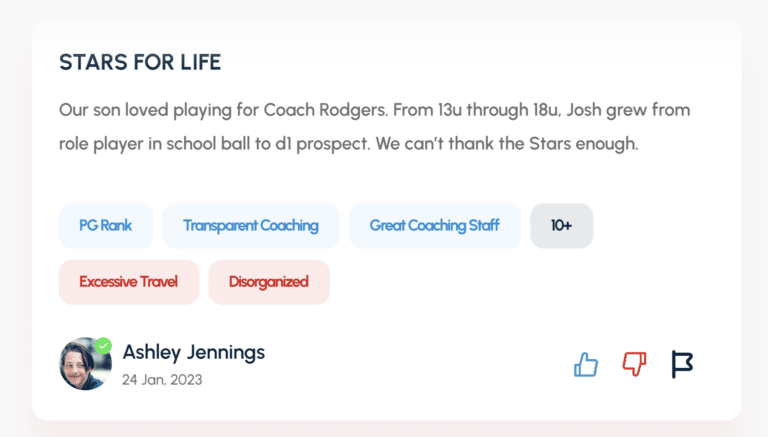
Unbiased Reviews
We offer you a clear, honest window into what it’s like to be a part of each organization.

Comprehensive Directory
Navigate our detailed directory of travel organizations around the country.
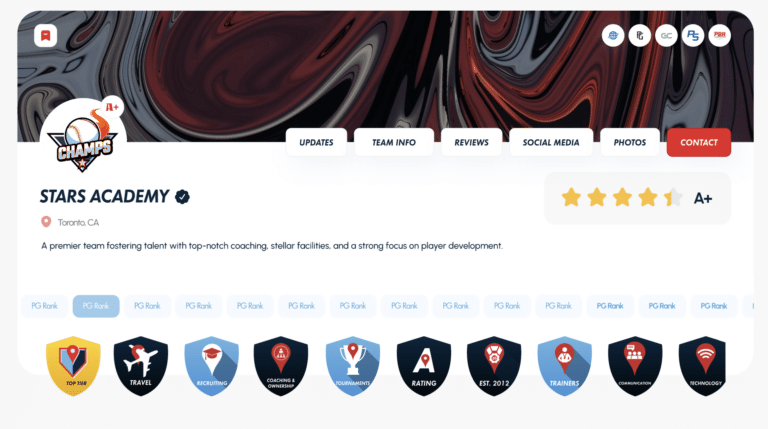
Organization Profiles
Dive into each organization from team culture to tryout updates and everything in between.
Looking for Better Baseball?
Redefining How Athletes Find Teams
Our goal is simple. We aim to streamline the process of finding the baseball teams for athletes of all levels. We partner with premier travel baseball organizations nationwide, offering them a stage to highlight what sets them apart.
This is your chance to explore and connect with teams that match your goals.

Player Resources
- Finding College Teams
- Recruiting Help
- Travel Ball
- Best D1 Schools
- Best Mid Major Schools
- Best Academic Schools
- Best D3 Schools
- Best D3 Baseball Fields
- D1 Schools in New England
- Best Business and Marketing Schools
- NYC Colleges
- Small D1 Schools
- Best Showcases
- How to Get Invited to PBR Events
- PBR Showcases
- How to Get Invited to PG Events
- Perfect Game Showcases
- Perfect Game Tournaments
- Perfect Game vs Prep Baseball Report
- Baseball Scholarships Guide
- How to Get Recruited
- Best Travel Tournaments
- Social Media Recruiting Guide
- Making A Recruiting Video
Hit the blog
- How to Find Teams
- Pros & Cons of Travel Ball
- Is Travel Ball Expensive
- Travel Ball vs High School
We are committed to providing high-quality, reliable content for our readers. Our articles occasionally include affiliate links. If you click and make a purchase through these, we may earn a small commission, but at no additional cost to you. Rest assured, these are genuine recommendations, built on thorough research and our honest opinions. Your support through these links enables us to continue sharing valuable information with you. If you have any questions, we'd love to hear from you.
Copyright © 2024 Baseball Near You |
- Privacy Policy
Site by CannaPlanners
The Ultimate Parent’s Guide to Travel Baseball | Everything You Need to Know
March 14, 2023
49 min read

If you’ve got yourself a youth baseball player, you’ll probably start hearing all about travel ball soon – if you haven’t already.
Travel baseball can be rewarding and exciting for both you and your ballplayer.
It’s a chance for your child to substantially develop their baseball skills and passion while having a ton of fun.
And a chance for you to foster that positive growth and love for the game while joining a new social tribe yourself – that of the travel ball parent, with its fulfilling experiences, camaraderie, and norms, just like any good tribe.
But, travel ball can also be a huge commitment. It often involves a significant financial and time investment from you and your budding athlete.
So before deciding to play travel ball, you should carefully consider what your child will get out of it and how it might affect your entire family.
Several factors should go into this choice of whether or not to play club ball.
And in this ultimate parent’s guide to travel baseball, you’ll learn how travel ball works, the pros and cons of travel ball vs. recreational baseball, what to look for in a new travel team, and even how to start your own travel team.
Let’s hook-slide in together.

# The Difference Between Travel and Recreational Baseball
# recreational baseball.
Recreational baseball often refers to Little League. Although, there are other organizations around the country, like PONY or Cal Ripken Baseball, that host recreational baseball leagues for their localities.
Local is a keyword here. That’s usually the main difference between rec and travel ball – recreational ball doesn’t require travel.
Recreational leagues focus on players learning the basics of the game, especially at the youngest levels. Seasons run from late spring to early summer. And you can expect around two games per week.

# Travel Baseball
Travel ball, on the other hand, refers to teams that travel to other cities or states to play baseball.
Club teams might be a single team or an entire organization with several teams spanning different age levels.
Another major difference is that travel ball is often played year-round. Not having extended off-seasons ups the commitment levels for all involved significantly.
A few of the biggest organizations in the travel ball world are the United States Specialty Sports Association (USSSA), the Amateur Athletic Union (AAU), Triple Crown Sports, and Perfect Game.
These organizations will host most of the tournaments that travel teams compete in.
Traditionally, travel ball has been a higher level of competition than Little League, meant to train elite players who had their eyes set on collegiate opportunities.
However, as travel ball becomes more ubiquitous, the level of competition can now run the gamut a bit more between extremely high to moderate-low.
Travel baseball, as you’ll see, is also much more expensive in terms of both cost and time commitment than its recreational variety.

# The Pros and Cons of Rec Ball Versus Travel Baseball
Both recreational and travel baseball have their merits and drawbacks. You and your child should consider the pros and cons of both before deciding which type of team to play on.
# Little League Pros
- Local – If you don’t fancy traveling around two weekends out of every month, then recreation leagues might be better for your family. Part of this locality is time. The amount of time you and your ballplayer will spend at team practices, games, and individual workouts is significantly less in recreation baseball.
- Learn a lot – Little League, PONY, or Cal Ripken Baseball teams’ emphasis on learning and having fun lets your kid discover and grow to love the game in a low-pressure environment. Some children benefit more from this, especially in the beginning, while others thrive only with higher levels of competition.
- Less expensive – The average fee in the U.S. for a season of Little League is $150, but it could vary as low as $30 and as high as $250 in some areas. Travel ball can easily cost three to four times that. But we’ll get into the details and rough estimates of this cost in just a bit.

# Little League Cons
- Dependent on your area – Having a local baseball league often depends on the interest in your area. No interest could mean no teams. The level of competition also depends on who’s playing and how much talent your area happens to have.
- Not a conduit for playing at the next level – Although it used to be the case, Little League is no longer a safe route to playing high school and college baseball. Today, kids who want to reach these levels and find success once there, must, in most cases, find a travel team to play on at some point in their journey. Of course, there are exceptions to this for ballplayers who naturally have top-tier talent. And obvious caveats must also be made to make room for how competitive or noncompetitive a particular high school might be. But these unique instances aside, the reality for many parents and coaches on the ground is that playing rec ball only these days makes it less likely for a young man to be an impact player in high school or college.
- Coaches – With recreational baseball, the coach is usually one of the players’ parents. And this person may know little to nothing about baseball, or about managing a youth team. They are exclusively volunteers after all. Sometimes you can get very lucky with elite-experienced parent volunteers and other times not so lucky – it's kinda a crapshoot.

# Travel Ball Pros
- Better competition and coaches – Travel ball usually affords more competitiveness and more experienced coaches. Travel ball coaches might even be former college and high school coaches who’ve started a travel club. And larger organizations often pay monthly or seasonal paychecks to these professional coaches – many of which will not have a child on the team.
- More games – Instead of the 8 games per month during a short, designated rec season, your child can expect to play much more with travel ball. It’s year-round, and the most games occur during weekend tournaments in the summer. Though some yearly tournaments are weeklong affairs. At each tournament, teams play between three and ten games – depending on how well your team does in bracket play. By playing more games, your kid gets more exposure to baseball and is afforded more reps to cultivate their developing skills.
- Nicer facilities, opportunity to travel – Travel ball tournaments are usually held at nice facilities with plenty of room for parents to watch and for teams to hang out when they’re not playing. Club ball also gives your kid a chance to venture outside their native city or state, which can be a valuable learning experience for them.
Unlock your ballplayer’s full potential
Find the perfect vetted coach to build a solid foundation or take your player's skills to new heights.
# Travel Ball Cons
Costly – A season of travel ball can run anywhere from $800-$28,000 per year, depending on tons of different variables.
The numbers above may be less common on both the low and high side – but both are certainly possible.
The second number ($28,000) that’s causing your blood pressure to rise higher than Boston’s Green Monster is meant to reflect a total expenses possibility with everything maxed out.
You may not find a number that high when you Google travel ball expenses, but the writers of those articles are likely not including every single cost into their calculations.
Here are some things to truly consider:
You will be expected to pay base starting fees and possibly tournament entry fees for your team or organization.
And, sometimes, you’ll also be on the hook for monthly team dues along with an annual organizational fee.
Also, you’ll purchase all of your ballplayer’s personal baseball equipment and uniforms if your team’s not sponsored.
And in travel ball, the pressure to get your ballplayer the top of the line equipment in all categories is much stronger than in rec ball.
Next, many sports complexes that host tournaments charge daily gate fees on top of not allowing outside food or drinks.
And you and your family need to eat and stay hydrated during these all day tourneys, which leaves the complex’s overpriced snack shack or restaurant as the only option at times.
Don’t forget the hotels, food, and transportation costs for any and all out-of-town games, too.
Further expenses include the gas and increased vehicle maintenance that you will surely incur driving to so many practices and games within your county or state.
Another common expense that sneaks up on parents are weekly private or group lessons that are often expected by competitive programs.
Besides hitting, pitching, catching, or fielding sessions, many parents also opt for sport performance training and athletic optimization services – i.e. strength and conditioning classes, a physical therapist, a chiropractor, etc.
Another cost is found by participating in team bonding and fundraising activities, where you might be expected to bring snacks and drinks or buy tickets – such small things add up during the course of the year-long travel season.
Finally, if your ballplayer is recruiting age, this higher number above includes college camps and showcases throughout the year.
It also includes getting his professional skills video produced, so you have something great to send over to college coaches.
Do not be too alarmed. Many of these expenses are totally avoidable and up to your family's budget.
But, you should also know there tend to be unspoken expectations and incentives for some of these activities that you might feel are avoidable once you’re actually inside of competitive travel programs.

- Time – Travel ball is a significant time commitment. The two weekends per month out of town for tournaments is only a small part of it. Your child might also have practice or scrimmages against other travel ball teams during the week. And, as mentioned, your ballplayer may still be expected to get professional skill and sports training lessons each week.
- Tough – The level of competition is, again, higher in travel ball. The players are better, and many teams take a “the best players play” rather than an “everybody plays” approach. Club baseball can be intense and challenging. If your ballplayer’s skills aren’t at the right level yet, then they’ll see less playing time and could get discouraged.

# Should You Switch from Rec Ball to Travel Baseball?
Parents often have mixed opinions when it comes to travel ball. In particular, there’s disagreement over what age to switch.
Some say you shouldn’t put your child in club ball until he is 13 years old, since many kids drop out of sports altogether by this age.
The rationale behind this recommendation goes something like:
Most parents can avoid paying a bunch of fees for travel ball between the ages of 7-12, when your child is statistically likely to give up the sport soon anyway. And if they’re still serious about baseball at 13 years old, then it’s worth the investment.
While some parents echo this sentiment, others strongly advise starting your kid in travel ball much sooner – if they show a real interest.
As one parent put it online when asked about starting at the 8U level, “As long as they don’t get burned out I say let em’ play.”
Another parent disagreed, however, saying that they saw “absolutely no value in travel ball with children that are so young.”
Most parents polled agree that their decision to switch depended on their circumstances.
Some said that “it is difficult to make a blanket statement” about when to switch or that decisions “are going to vary based on regions.”
Again, the latter statement points to the raw fact that certain geographic regions of the country are much more competitive in baseball than others.
Living in a highly competitive region raises the threshold necessary for things like making a high school team to the point that playing travel to gather enough skill is an almost prerequisite.
Often, the decision to join a travel team does come down to the organizations in your area. You’ll want to find out how many travel organizations there are in your locale and what their quality is.
If there are no clubs in your town or city and none nearby, you’ll be looking at a bigger time commitment and more expenses to put your kid on a club team – which will include much more driving and the potential for more hotel rentals.
But when to switch from rec ball to travel is not the most important question facing parents and ballplayers who are still on the fence about switching in the first place.
So let’s get to the heart of the matter.

# Will Your Child Enjoy Playing Travel Ball?
The most important factor to consider when making the switch to travel ball is your child’s interest in baseball.
Is your kid a competitor looking to sharpen his or her skills and continue playing as he or she gets older?
Or does your child like baseball for the fun of it, and enjoy being on the field with his teammates?
Travel baseball is a huge time commitment – but not just for you. Your child has to be willing to put a lot of personal time and energy into it as well.
# Is Your Child Willing to Give Things Up for Club Ball?
Playing travel ball means your kid will miss out on many social events with friends and family.
Birthday parties, holiday celebrations, sleepovers, school events, family reunions, can be all sacrificed to time playing baseball.
This is not say that there aren't plenty of travel ball players excelling in the classroom, because of course there are.
It's just that they need to be more focused and organized than other kids to get those same high marks, and parents should be aware of these realities.
Not only are time and special occasions sacrificed, but the money you spend on baseball – fees for the team, equipment, private lessons, etc. – is money you cannot now spend on other things your child might want.
Depending on your family’s finances, new clothes, video games, gadgets, and other material items for your son could come at the cost of playing baseball.
Whether you switch from recreational to travel baseball is ultimately down to you and your child. There are many factors to consider, some of which, like where you happen to live, are outside of your control.
The best thing you can do is educate yourself and your child as much as possible about the pros and cons of travel ball, and then make an informed decision together.
And this guide is a great start. But it should be supplemented by talking to local parents in your area and possibly finding Facebook Groups or other communities to learn from parents who have been there and done that when it comes to making the travel ball switch.
If you do decide travel ball is the way to go for your family, then your next task is to find the best team for your ballplayer’s development.

# How to Get Started on a Travel Baseball Team
# what to look for in a travel team.
If you and your child do decide to join a club baseball team, then you have five main things to look for when choosing a team.
# 1. Coaching
Here are few questions about any travel ball coach that you, as parents, will want answered right off the bat before joining their team:
- Who is the coach, and what is this person’s experience?
- Is the coach someone who knows what they’re doing in terms of baseball skills and leadership?
- Even if they know the game, are they new to the travel ball scene?
Note: this last question can become more important once your ballplayer gets into the college recruitable ages.
If it’s your ballplayer's goal to play in college, you will want to join an established program that plays in the right tournaments to get noticed, and a coach that has built a trusted relationship with college coaches and recruiters over the years.
But, if the current goal is just to improve your son’s skill set, then the coach’s knowledge and ability to articulate it might be more important to you than he or she being a travel ball insider.
Some additional, related questions to ask both the travel coach directly and to ask parents whose child is already playing under he or she are:
- What kind of coaching style is most commonly used?
- Does the coach emphasize skill development or college recruitment?
- Is the coach more like an instructor, or is the team playing to win nearly all of the time?
- Would the coach yell at a player for making a mistake on the field or pull them aside afterward to discuss the error privately?
See why SeamsUp's the #1 instructional app for ballplayers
As we’ve explored, cost is a big factor for travel ball because it’s not cheap. Make sure you get all the anticipated, known costs for the season upfront from the coach or their team administrator.
If the coach can’t give you exact figures of what things cost on their end – monthly team dues, organization fees, uniform costs, and any additional tournaments costs – before you sign on, be wary.
The coach may not be organized or experienced enough to help your ballplayer and you might end up paying more than you expected to.
Some club teams have sponsors who provide equipment and uniforms, but others will ask parents to pay for these in addition to registration fees.
You might also have to hand over a fee to help fund the coach’s stipend if they are paid for their expertise.
For some elite organizations, coaching is a full-time job, plus the coach has to travel with the team too.
# 3. Location
Here’s some questions on this front that you’d want answered:
- Do you live near a big urban center where the team plays most of its tournaments, eliminating long travel times?
- Or does the team regularly travel out of state for their games?
- It’s a travel baseball team, but exactly how much travel is involved on this particular team?
Think carefully about how much you and your kid are willing to travel and factor those expenses into the cost.
# 4. Structure
Structure-related questions might include:
- How does the team operate?
- Will your child get to see significant playing time?
- Will the team have regular practices and training sessions to attend as well?
Another important question about structure is if your kid will get to pick their position.
Meaning, will the coach let kids play where they want, or try to rotate everyone around to different positions during practices or practice games?
Of course, this last line of questioning applies almost exclusively to the youngest levels of play. From about 14U up, there is more positional specialization and team roles are established and sustained more based on the talent and performance of the individual ballplayers.
# 5. Values
Value question to get clarity on:
- What is the mission of this travel team?
- Are they helping players get noticed by college recruiters?
- Do they just try to offer more playing time and a fun environment?
Make sure their objectives line up with yours. Ask yourself as well how your child will develop as a baseball player by joining this particular travel team.
# 6. Team Chemistry
Before joining a club team you should try to gauge the team’s chemistry.
Once you commit, your child will be spending a lot of time with these teammates, so if they don’t get along or your kid doesn’t feel like he or she fits in, it could be a problem.
Similarly, look at how the parents interact with the players and each other. Are the other parents promoting a supportive environment for everyone by being encouraging?
Or are they the types to yell at umpires, coach from the stands, or take the game to unhealthy levels?
Not only will your kids be spending a lot of time with their teammates, but you’ll also spend time with the other parents.
So choosing a travel team is in a way choosing friends and peers for both you and your child.
Team chemistry should also extend to how players and coaches relate to each other. Do the coaches work hard to bolster the kids’ confidence, or are they constantly tearing them down for the sake of winning?

# Where To Look for Travel Baseball Teams
Reading up on how travel baseball works in helpful guides – like this one – is again a great start.
Don’t be afraid to ask around in your area about club baseball, either. Word-of-mouth is often one of the best ways to understand travel ball, especially how it operates in your specific city or town.
You can also look up registered teams in your area on the USSSA website or FieldLevel.com .
Again, Facebook Groups are also a great way to find local travel teams, since many teams might not have their own website.
These groups are filled with parents like yourself and coaches who relish in helping with your travel ball journey.
But maybe you have lots of playing or coaching experience and want to spearhead your own travel ball team. We’ve got you covered on exactly how to do it below.
# How to Start Your Own Travel Baseball Team

Choosing to join an existing club team is one thing; starting your own is another entirely.
Maybe you have some playing or coaching experience and you’d like to put together a team for your son or daughter. Maybe there aren’t any club teams in your area, so you’ll be starting the first.
Whatever your reasons, starting a travel baseball team is a rewarding endeavor, albeit a daunting one. You are basically starting an entirely non-profit business.
And you’ll see below that you must do many of the same steps that new entrepreneurs must do when beginning an enterprise, so make sure you have the time and skills for this undertaking before you even start.
The steps to creating a travel ball team can be broken down into four main phases.
We’ll look at each of these in detail.
# Travel Ball Team Building Phase 1 - Finding Volunteers
Before doing anything else, you should recruit some other parents or outside volunteers to lend you a hand.
Whether you’re planning to coach the team or to have someone else do it, committing to running all aspects of a team as a single individual for an entire season isn’t feasible.
To make a strong team, the internal team of coaches, team managers, or recruiters needs to be strong first.
Call on parents you know and trust, former coaches, former teammates from your playing days, or current older players to help you out.
As you’ll see in future steps below, it’s highly recommended these days to have at least one person on your team who knows marketing, graphic design, or website creation. You’ll save a lot of time and money this way.
And instead of having 2-3 full-time volunteers, it can be helpful to eventually amass a network of people who are willing to pitch in semi-frequently.
That way, you’ll have coverage if one of your coaches or volunteers can’t make it.

# Travel Ball Team Building Phase 2 - Planning Your Budget
After you have a group of people to help out, you should focus on the financial planning for the team.
Make a list of the expenses that you’ll have to cover, along with sources of funding.
Next, you should approach local sponsors about paying for some of the things you need, like uniforms and equipment.
Now’s the time to think about fundraisers as well. Any the money you raise helps lower your player fees.
Fundraisers are an important aspect of many teams, especially those without established sponsors.
Raffles, silent auctions, casino nights, bingo nights, trivia nights, and paid dinners can all make great fundraising events.
Look around at your volunteers and support staff. Do they have any skills, jobs, or relationships that can help raise funds to send your boys to the best tournaments?
Company tickets to sporting events, like box seats or concerts, make great raffle or silent auction items. And if someone owns a restaurant, a paid dinner fundraiser is a no-brainer.
Take this budget phase seriously, and it’ll save you a lot of headaches down the road.
# Travel Ball Team Building Phase 3 - Getting Your Players
Once you have some people to help and a balanced budget, you need to find some players.
It’s possible you already have a group of interested players and that’s why you’re starting the team in the first place.
But your initial seed group may not be big enough to field an entire team. So you’ll likely need more.
There are two slightly different journeys at this point in the process. One for people wanting to start a travel team by joining an already established organization and another for those starting a new team completely from scratch.
Of course, joining something that already exists is a bit easier, because they'll hopefully have team processes and even recruiting relationships in place that'll allow you to hit the ground running.
If you are joining an already established travel ball organization, then you'll want to leverage their name, social media accounts, website, and email list to help you recruit your new squad of ballplayers.
Even if this is the case, you will likely still want to create your own social media accounts that use the established organization's name alongside either the age group or grad years of your team and your last name as the username.
Here's a template for what we mean when applied to an Instagram account name:
{Established Organization Name} {The Age Group: 8U, 10U, 12U, 14U, 16, 18U or Graduation Years} {Your Last Name}
Example: LA Pioneers 12U d'Aranud
But, if you're starting a new team or organization from scratch, there will be some additional steps. To make people aware of your team, you'll want to do the following:
- Pick a name
- Create a logo
- Set up all of your social media profiles
- If possible, create a simple website.
A website can be a major differentiator between your travel team and others, as most teams still only have social media presences and no official site in the current year.
For social media, you need Facebook and Instagram profiles at minimum, because these are the first places interested potential parents in the current year will check you out.
If your logo design and website developer skills are not where you’d like, we recommend outsourcing these things to freelancers on Fiverr, UpWork, or 99 Designs.
You can find incredibly talented people who are reasonably priced and can do whatever you require quickly.
But always first look into your new network of trusted team helpers and see what skills they possess before outsourcing anything.
Once these fundamental online presences are established, you will want to make some social posts that give parents looking into your program feelings of trust.
Post about your playing or coaching experience and about everyone on the awesome team of helpers that you’ve assembled. Seek to post images or videos that convey your values as a new team.
Tell everyone you know about these new profiles, so you can build a bit of social proof for your team and encourage all of your helpers to do the same. This step alone can get you your first one hundred to a thousand followers.
Once people in your community know your team exists, you can hold tryouts for skilled players.
Seek out travel baseball message boards and Facebook groups, and post all the details of your tryouts – making sure to include a link to your shiny new website or social media profiles.
There are even Instagram profiles dedicated exclusively to posting the details of travel ball tryouts, so take advantage of these as well.
However, if you’re still not getting enough interest through these free methods, you might consider setting up paid Facebook or Instagram ads. Just make sure that the video or graphics you use for your ads are top-notch.
Again, if you’ve never created such assets or set up Facebook ads before – and they can be overwhelming to the uninitiated – lean on outside professional help in the beginning. Experts in paid media creation and management can be found all over the web.
Next, you run your awesome baseball tryouts. These we’ll leave to you, coach.
When putting together your roster though, hedge toward a bigger team rather than a small one .
Summer is an active time for kids – they have family vacations and other sports or activities to do in addition to baseball. You may not have your full roster attending every tournament at the start.
So having a team with at least 14 or more players covers you for when other commitments come up.

# Travel Ball Team Building Phase 4 - Registering Your Team
Once you have your team put together, you’ll need to register your players with at least one of the major travel ball associations in the country.
Again, these are USSSA, AAU, Triple Crown, Nations, Perfect Game, but there are others.
These associations host the travel ball tournaments that you’ll be competing in. Make sure you follow the regulations and register your team properly. Each organization has their own unique guidelines for registering.
Once this phase is complete, you still have all the practices, travel logistics, and dues collections to worry about – but you will have laid an amazing foundation for your new travel team.
Now you can enjoy the honor of helping the next generation of ballplayers find success in the game you love.
# Wrapping Up Our Ultimate Parent’s Guide to Travel Ball
As you’ve undoubtedly realized – because we repeated it more than once – travel baseball is a big commitment.
Switching from recreational baseball to travel ball shouldn’t be done lightly.
It should also be a joint decision between you, your ballplayer, and the rest of your family. If you or your kid is interested in club baseball, then make sure you both understand the impact it’ll have on your lives.
Once you know what you’re getting into, you can make the best decision together.
About the Authors

Courtney Withrow
Professional Writer
Originally from the U.S., Courtney is a Brussels-based freelance writer with a Master’s degree in International Relations. She grew up playing softball and still loves the game.

Chase d'Arnaud
Chief Talent Acquisition Officer & Baseball Business Ops
Chase d'Arnaud is a 7-year veteran of Major League Baseball. He played for the Pittsburgh Pirates, Philadelphia Phillies, Atlanta Braves, Boston Red Sox, San Diego Padres, and San Francisco Giants.
Grow your business
Stay on top of the biggest trends in baseball & softball coaching. And get tips, tricks, and full step-by-step guides to accelerate your brand.

How to Start a Travel Baseball Team in 7 Steps

How to start a travel baseball team
- Find coaches and volunteers
- Budget for the season
- Create a brand and generate interest in your team
- Promote your travel baseball team
- Schedule tryouts
- Collect payments
- Register your teams

1. Find coaches and volunteers
- Parents and other family members: This will be where most volunteers and coaches come from. Having parents involved is very helpful, especially since most will be present during practice and games, so they are more than likely willing to assist.
- Former coaches: Many former coaches are always looking for ways to still be involved in the game of baseball. This may even be a good way to recruit the best players, as athletes usually run in the family. Former coaches also have the experience to help lead other volunteers.
- Former/current players: Coaches and volunteers won’t be able to make every practice or game. High school or even older players can often serve as fill-ins when necessary. This also gives the younger players something to strive towards as they interact and learn from players they can admire.
2. Budget for your season
Practice facility, uniforms and team equipment, travel expenses, fundraisers and sponsorships, 3. create a brand and generate interest in your teams, logo and brand.
- Your logo should have at least one color version as well as a black and white version.
- You should also make sure you have a logo with no text (for content like social media or hats) and a version that includes the name of your team.
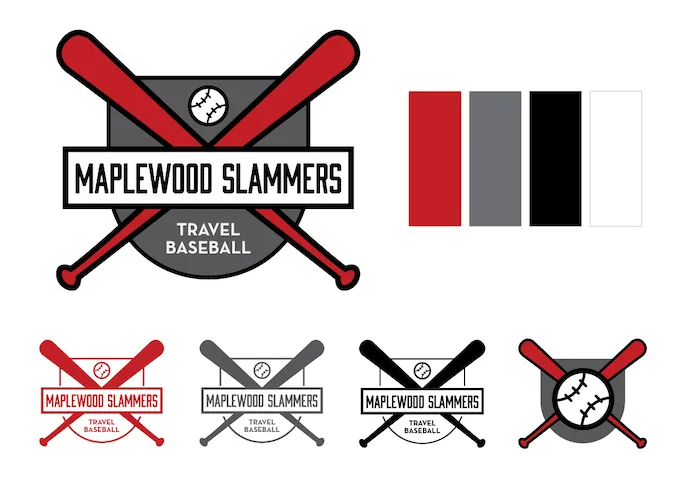
Website for your travel baseball teams
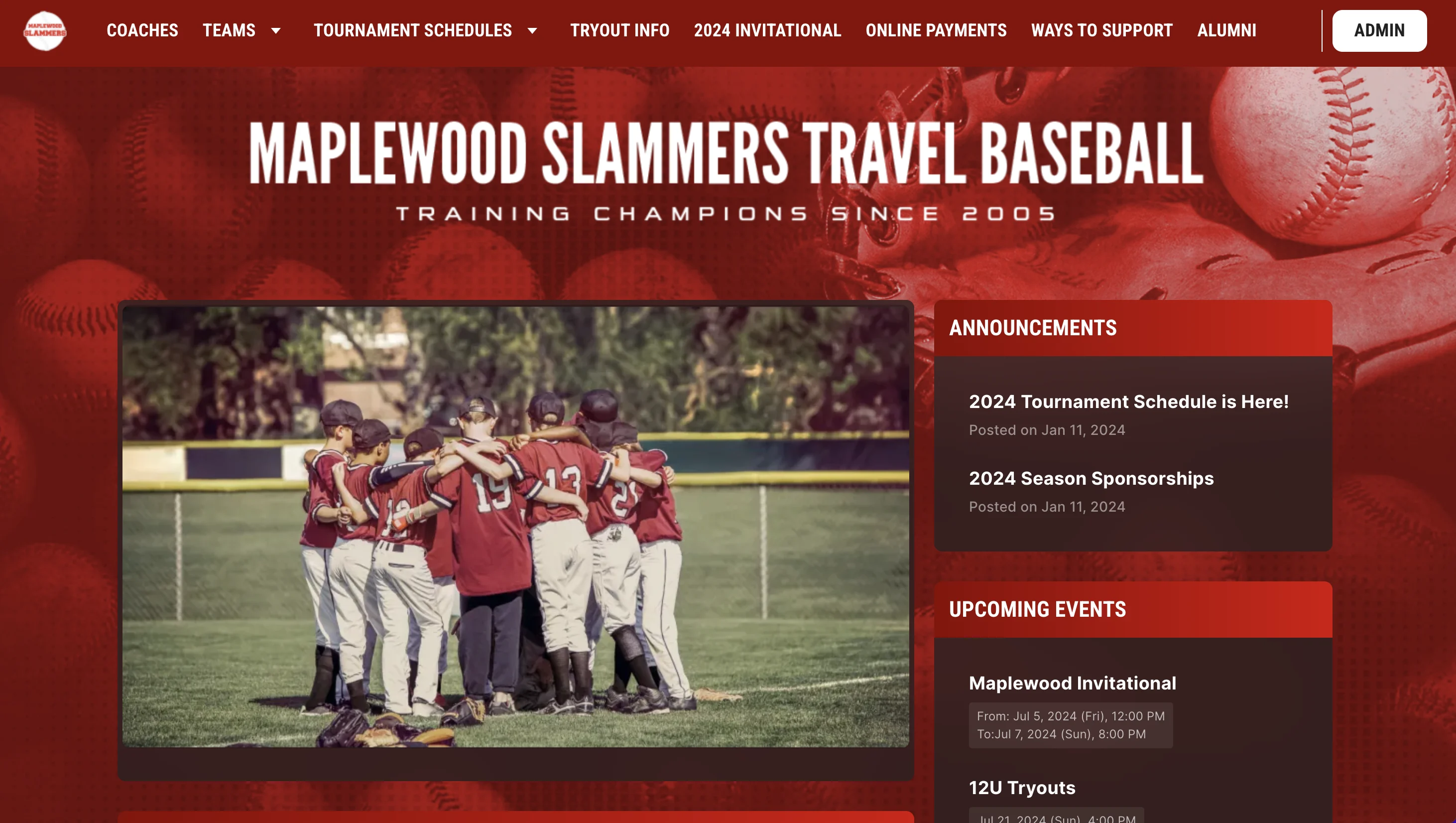
4. Promote your travel baseball team
Use google keywords online, build relationships with local schools and rec baseball teams, run free baseball training camps and clinics, 5. scheduling tryouts, 6. collect payments, 7. register your teams.
- USSSA Baseball
- Triple Crown Baseball
- AAU Baseball
- Nations Baseball
Difference between travel baseball and high school baseball
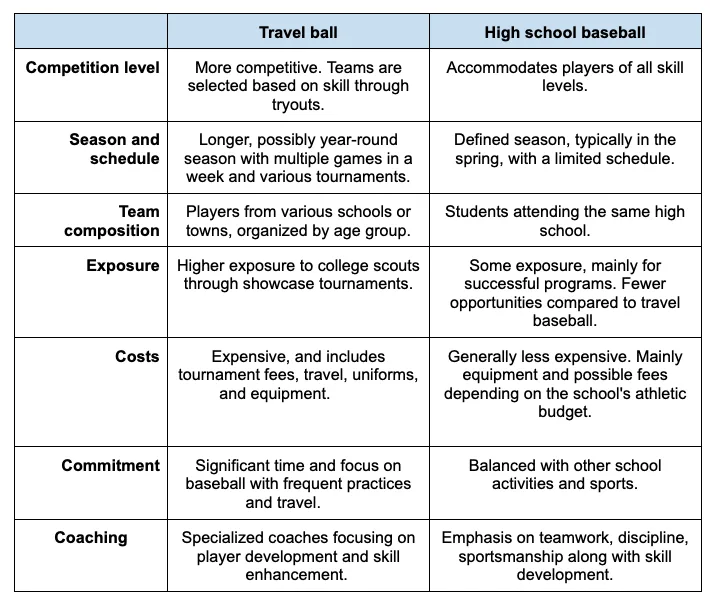
Do MLB players play travel ball?
Is travel baseball worth it.
Getting your travel baseball team ready for next season
Starting a travel baseball team faq, how much does it cost to start a baseball team, at what age should you start travel ball, how often do travel baseball teams practice, is travel baseball better than little league.

Travel Baseball: The Ultimate Guide for Parents and Players
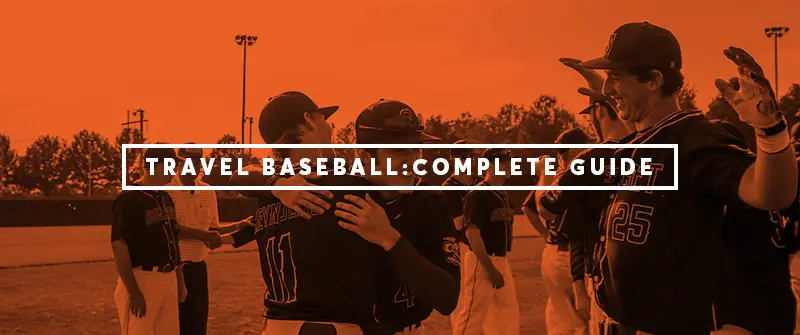
Table of Contents
What is travel baseball, what to look for in a travel baseball team, travel baseball vs. little league, travel baseball pros and cons , criticisms and controversy, is travel baseball worth it.
For many families, the transition from Little League to travel baseball comes with stress, anxiety and questions about what to look for in a team and what to expect from the experience — not to mention the question of whether making the switch from a more laid-back rec ball program to a more competitive (and expensive) travel club is the right decision in the first place.
In this post, we’re going to go over everything you need to know about getting started with youth travel baseball. We’ll help you answer the questions above and determine whether travel baseball is a good fit for your son or daughter.
If you have a softball player in the family, you may also want to check out our article “ What to Look For in a Travel Softball Team ,” which covers some of the same information from a softball perspective and dives deep into my personal experience as an elite-level amateur player and college recruiting prospect.
Table of Contents :
- How to Choose a Travel Baseball Team
- Travel Baseball Pros and Cons
- Is Travel Baseball Worth It?
First, it’s important to understand what a travel baseball team is and how travel baseball is organized.
There are tens of thousands of travel baseball teams around the country, and their popularity has exploded over the past two decades. As recently as the 1990s, travel baseball was a niche experience limited mostly to elite players in baseball-rich areas like Texas and California. Today, participation is seen by many as a near necessity for talented players to develop their skills and hone their game against the best competition they can find.
Whereas Little League is the dominant organization when it comes to recreational youth baseball, there are multiple organizations throughout the country that host hundreds of travel tournaments each year. Some of the biggest and most popular are USSSA (United States Speciality Sports Association), AAU (Amateur Athletic Union), Triple Crown Sports , and Perfect Game . Travel baseball teams often participate in tournaments organized by more than one of those organizations.
A team can be started by anyone. Many are formed by parents, but many others are formed by high school and former college coaches. Depending on their organizational goals, some programs have just one team that participates in one age bracket (such as 10 and under), while some are run like businesses and have teams that compete in every age group.
Some huge organizations, such as California Baseball Academy (CBA), even have multiple teams within the same age group, located in multiple cities. CBA has teams not only in California, but also in Nevada, Texas, Utah and the southeast. High-level programs like that are often known for attracting top talent, for training recruits into elite players, and for feeding those players into nearby colleges and universities.
Travel Baseball Competition Structure
Virtually all travel baseball games are played on weekends in a tournament format. Those tournaments can theoretically be held anywhere, but are frequently held at multi-field facilities in easily-accessible travel hubs. For example, many Florida tournaments are held in Orlando because it’s in the relative center of the state, it has plenty of hotel rooms, and it’s home to many great baseball facilities. The farther you live away from such a hub, the more you should expect to travel.
Most tournaments begin with pool play, meaning that teams are guaranteed a number of games before heading into single elimination. A team can expect to play anywhere from three to eight games over the course of a two-day or three-day tournament, depending on how they perform.
There is no set number of tournaments a team must participate in. Each team decides which tournaments to enter on a case-by-case basis, taking into consideration factors such as age level, skill level, and cost. In general, two tournaments per month can be seen as about average, although higher-level teams may play more frequently.
Most organizations run regional and national championships, which are invite-only. For example, USSSA hosts “qualifier” tournaments, where the winner of the championship game (and sometimes the runner up) can earn a bid to the USSSA national tournament.
Additionally, beginning at age 14, some teams start participating in “college exposure tournaments,” where college scouts come from across the country to watch and evaluate prospects. These tournaments are typically more expensive than regular tournaments, and are often farther away.
How to Join a Travel Baseball Team
If you’ve decided to join a travel baseball team and aren’t sure where to find one, there are a number of resources available.
It may go without saying, but word-of-mouth can be a valuable first reference point. If you’re thinking about switching to travel baseball, chances are that you already know someone in your area who has made the jump. If so, don’t be afraid to ask them questions about the team and their experience. It’s a big commitment — both in terms of time and finances — so it’s important to make sure you find the right club for your son or daughter.
In addition to word of mouth, many organizations offer a list of active teams on their website. For example, USSSA has a tool that lets you filter teams by age level, skill level, and location . There are also many state-based forums and Facebook groups where coaches post their team’s tryouts (and positions needed). As an example, here are Facebook groups for travel baseball teams in Florida and Michigan — you can find similar groups for every state.
Another good option is FieldLevel.com , which (like the USSSA site) allows you to filter teams by state and level. While not every team is listed on that website, it does include over 4,000 clubs.
Here are eight things to think about when evaluating teams. These factors will make a big difference when it comes to your overall experience, so take the time to think about them, and don’t be afraid to ask questions of parents and coaches.
1. Coaching
A coaching staff can make or break a team. How coaches manage players, keep the game fun, instill the fundamentals, and focus on development — not only as athletes, but as young men and women — is extremely important.
Some travel baseball teams have parents or grandparents serving as the head coach. While that can be fine, it’s important to make sure those coaches don’t make keeping their own child on the field a priority. Before committing to a team, spend some time researching it by watching a practice and talking to current and/or former players and parents.
What’s the coaching style? Do they have high expectations but still encourage and love their players? Or, on the other hand, are they screaming at players when they make a mistake?
Additionally, are players treated equitably, or do some get preferential treatment based on their relationship to the coach or their financial contribution to the team?
Ideally, your child will be a part of that team and organization for consecutive years, rather than bouncing from team to team. As such, determining whether the coaching staff is a good fit is a crucial first step.
2. Cost
For many parents, this is the most terrifying aspect of travel baseball.
Just how much of a toll is this going to take on your bank account? The specific answer varies, but the typical range of cost for participating in travel baseball is between $500 and $2,500 per year.
That said, you can end up spending a lot more than that. Back in 2011, CBS News reported that one Georgia family paid $4,000 per year for their 9-year-old son’s travel team. You can imagine that older players in elite programs that travel all over the country can spend even more over the course of a season.
Typically, the more intensely focused a program is on developing its players for college baseball, the more money the program is going to cost. On the other hand, teams that are playing more for the fun of it — those looking for just a little more structure and competition than offered by Little League — won’t put as much of a dent in your wallet.
There are a number of specific factors that go into how much it costs to be on a team:
- Where you live . If you live in a baseball hub, like Texas or California, you won’t have to travel as far to get to tournaments. Many teams from rural areas regularly drive across multiple states (or sometimes even fly) to tournaments. As such, where you live will likely be the single biggest variable in your overall travel baseball cost.
- Whether you have to buy your own equipment . Some teams are sponsored by equipment companies like Easton and Rawlings and have their bats, gloves and cleats provided either for free or at a reduced cost. Obviously, this can be a huge savings. Also, keep in mind that (unfortunately) equipment is often viewed as a status symbol in travel baseball. If your child joins a team where every other player has multiple bats and position-specific gloves, he or she is going to press you for similar gear.
- Whether you have to rent facilities . Some teams practice exclusively at public fields. Others have little or no access to such facilities and have to rent fields and/or indoor space (especially for winter workouts). This can have a huge impact on the overall cost of participation.
- Whether or not coaches are paid . Some teams — typically the more competitive ones — pay their coaches small stipends and/or cover their cost of travel. On one hand, this tends to lead to better coaching. On the other hand, families are the ones who will ultimately foot that bill.
- How competitive the team is . Higher-level tournaments typically have higher fees. Lower-level tournaments, operated on a more sub-regional basis, are usually much less expensive to enter. If cost is a concern, make sure you know what types of tournaments the team usually enters over the course of the season.
3. Location
As stated earlier, location is a key factor in deciding which travel team to play for. If you’re fortunate enough to live in California, Florida or Texas, you’re going to have a lot of opportunities to play with and against high-level competition right in your backyard.
But outside of those states, it’s a little bit tougher, and you have to decide how committed you are to playing at the highest possible level.
For example, if you live in a medium-sized town outside of a major baseball hub, chances are you have at least a couple of travel ball options. However, the odds are that those options are not the absolute cream of the crop when it comes to coaching and competitiveness. In order to play for the absolute “best” team possible, you might have to commute from your mid-sized town to the nearest major city.
So you’ll be faced with the following choice: play on a lower level team that’s closer to home, or drive a hundred miles or more for twice-weekly practices? It may sound crazy, but many families do just that.
Why would they commit so much time and money to their son or daughter’s athletic pursuits? It comes down to goals. Better teams often provide better coaching and more opportunities for exposure to college and professional scouts.
What’s the team’s mission? Is the focus on fun, player development, college exposure, or a mix of all there? Teams can have many different goals and missions, and there’s no right or wrong approach.
However, it is possible that a team’s mission does not align with your values and goals, and you need to think about this before committing, as a compatibility mismatch can lead to coach-parent and coach-player tension.
5. Organization
Consider the reputation of the organization you’re evaluating. When you join a team, you and your son or daughter will essentially be endorsing everything the program stands for. If they’re known for dirty play or being disrespectful to the game, you’ll be associated with that.
And believe it or not, the baseball world is a small and surprisingly tight-knit community. College coaches tend to know which programs produce bad apples — and they avoid them. In fact, many college coaches will completely write off an entire organization that has a reputation for not playing the game the right way or for having disrespectful players.
6. Playing Time
There’s an important balance between getting enough playing time and being challenged. Before committing, ask the coaching staff what kind of playing time your child can expect — including at what position.
If there are two returning shortstops, he or she most likely won’t be playing there and might have to learn another position. That’s not a bad thing: college coaches want players that are versatile, and many players change positions as they get older and their bodies develop.
Still, it’s helpful to know what to expect ahead of time. Getting game reps is important from a development perspective, but also just from a fun perspective: no kid wants to consistently travel to a tournament only to sit on the bench for most of the weekend.
7. Skill Level
Be realistic about your child’s skill level, and pay attention to the level of competition around him or her at tryouts (i.e., the skill levels of the other players). If your kid has the fight and desire to compete for a spot (like they’ll have to do if they make it to college ball), then putting them on a team where they’ll be challenged is the best option.
But if he or she is there to have fun and make friends, with no burning desire to be constantly improving, then choosing a travel team that’s more low-key will be the better call.
8. What You’re Giving Up
Travel baseball tournaments are on weekends, and players often have to sacrifice certain things that are part of a normal childhood.
Is your son or daughter willing to miss out on things like birthdays, sleepovers and school dances, because most of their time is spent doing homework, traveling to and from games and practices, practicing on their own (possibly including private lessons), and spending nearly every summer weekend at the ballpark?
And are they willing to sacrifice the material things that matter to kids — things like clothes, video games, new smartphones, etc. — because so much money is being spent on baseball?
As I wrote in THV’s guide to travel softball , my family made major sacrifices to support my athletic pursuits.
For some, their love of the game is so great that giving up these things is a no-brainer. For others, they may regret missing out on these social activities. And that’s perfectly fine! Just be honest with each other and talk about the true costs of travel baseball — because it’s not just the sticker price.
There are some important similarities and differences between competitive travel baseball and recreational baseball. Both can teach many valuable life skills, such as work ethic, good sportsmanship, teamwork and bouncing back from failure. But they are very different when it comes to time commitment and competitiveness.
The Little League schedule usually runs from the late spring through early summer, with teams practicing twice per week and playing two games per week. The total number of games per season varies, but it usually ranges from 10 to 20. It’s a local program, which means travel is either limited or non-existent. In general, Little League coaches are parents.
Little League can be a great place for kids as young as 4-years-old to start playing the game. They’ll learn the rules and the absolute basics of hitting, pitching and fielding in a fun an easy-going environment (except for the occasional parent that takes their coaching position overboard).
Overall, Little League fits the classic stereotype of youth baseball: kids having fun playing the greatest game in the world, without much pressure or focus on player development.
Back in the day, Little League would feed into middle school and high school programs, which carried the bulk of the weight when it came to getting payers ready for college and the pros. But today, the reality is that it’s almost impossible to get the coaching and skill development you need by participating only Little league or other rec ball programs.
That’s especially true when it comes to the gap between “Majors” Little League (12-and-under) and high school. Few middle schools still have baseball programs, and those programs that do exist tend not to be very good. Likewise, while Little League offers both a Junior division (12-14) and a Senior division (14-16), those leagues tend to pale in comparison to the coaching and competition offered by travel ball.
So, if your son or daughter is serious about playing baseball at a high level, it’s especially important to focus on the transition to travel ball at around the age of 11 or 12.
There are positives and negatives when it comes to travel baseball. Here are a few of each.
- Better competition : Players are more serious about the game and more driven to improve. This higher level of competition will help push your son or daughter to improve their own skills.
- Better coaching : Travel baseball coaches tend to be better qualified, more knowledgeable, and better-connected. At the highest levels of travel ball, teams often employ former professional coaches.
- More exposure : Aside from high school baseball, travel ball is the primary means of exposure to college coaches and pro scouts. Plus, travel teams often attend showcase tournaments and camps.
- More games played : Travel teams play significantly more games per year than rec ball teams.
- Facilitates travel : Sometimes seen as an ancillary benefit, the travel itself can be a valuable and eye-opening experience for players. Many kids don’t have an opportunity to travel out of their own area or state, and travel baseball can provide that.
- Encourages character development : Because travel teams are more serious, there’s a greater emphasis put on things like being on time, demonstrating maximum effort, and having a good attitude.
- Cost : Travel baseball is expensive — sometimes absurdly so. Families often spend around $2,500 per year, but the costs can be even higher.
- Time commitment : Even a moderately competitive travel team can consume an entire summer’s worth of weekends.
- Ultra-competitive : On most travel teams, there’s a balance between player development and winning. What you won’t often find is an “everybody plays” approach. For the most part, the best players will play the most, which makes for a highly-competitive environment.
- Tougher workouts : This can be a pro or a con, depending on the player’s perspective and goals. Tougher workouts can lead to better outcomes, but they can also be mentally and physically taxing if the player isn’t fully invested.
- Lack of diversity : Because travel baseball is expensive, it has often been criticized for a lack of socioeconomic and racial diversity.
Travel baseball provides many benefits and can be a valuable opportunity for players who are serious about the game and committed to playing at the highest possible level. However, it’s not without its share of criticism and controversy.
In an essay titled “ Left Out ,” MLB superstar Andrew McCutchen wrote about how kids like him, who grow up in low-income families, are often excluded from travel baseball and thus systematically disadvantaged when it comes to development and exposure:
“When you’re a kid from a low-income family who has talent, how do you get recognized? Now, you have to pay thousands of dollars for the chance to be noticed in showcase tournaments in big cities. My parents loved me, but they had to work hard to put food on the table, and there wasn’t much left over. They didn’t have the option of skipping a shift to take me to a tournament over the weekend. […] That’s the challenge for families today. It’s not about the $100 bat. It’s about the $100-a-night motel room and the $30 gas money and the $300 tournament fee.
[…] If you’re a poor kid with raw ability, it’s not enough.”
McCutchen was lucky: an AAU coach “discovered” him at the age of 13 and covered his travel ball expenses. But most kids from similar situations aren’t so fortunate.
Why is this important for you, the parent of a child thinking about joining a travel team?
On one hand, it’s important to be aware of how the systems we participate in affect our society. But on a much more specific level, you should know that your child will be entering a largely homogenous environment.
On top of that, kids from lower-income families can often feel out of place in travel ball — especially if they don’t come to the ballpark with the latest, top-quality gear like their teammates. This social dynamic can have a powerful impact on your child’s experience.
Additionally, travel baseball means that both your family and your child will be spending less time within your own community.
There’s been a lot written in recent years about how travel baseball may be contributing to the erosion of communities , because it pulls families out of local baseball programs that once served as important civic institutions.
This is evidenced by the sharply declining participation in Little League. In the organization’s Southeast Region (a hotbed for a travel baseball), the number of Little League players has plunged by nearly 50% since 2007 .
So we’ve come to the biggest question: Is travel ball worth it?
If you want to improve your skills and have the best chance to play in college or the pros, travel baseball is the way to go. But remember: there is a range of cost and time commitment within travel baseball. Your son or daughter doesn’t necessarily have to opt for the most expensive travel team in order to be sufficiently challenged (and later on, to get noticed by college coaches).
Your goal in evaluating teams should be to find the right balance of:
- Financial commitment
- Time commitment
- Intangible sacrifices (school events, community involvement, etc.)
- Baseball goals
After reading this article, you should have a very solid understanding of what Little League and travel baseball have in common, their differences, and what you should be looking for in a club.
Remember, this is your child’s choice to. Help them see the pros and cons of each option. And although we stated it earlier, we cannot stress this enough: you cannot dictate your son or daughter’s commitment to the game of baseball. It’s up to them. So, support them in whatever capacity they want to participate. If you do, they’ll never regret or forget the amazing experiences, friends, and lessons learned playing this great game.
The Hitting Vault is the most popular, most trusted and highest rated online hitting community.

Alexa Peterson
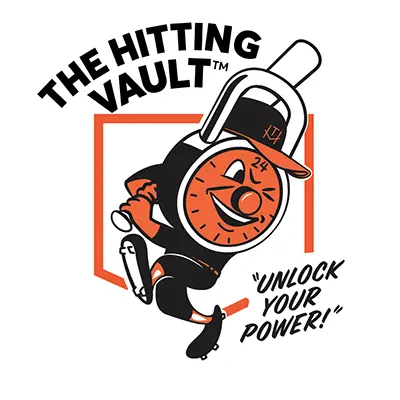
Join 93,000 Subscribers Who Love Hitting.
Get two articles delivered to your inbox each week.
How & Where to Get a Youth Sports Sponsorship [2024 Guide]
Youth sports are more than just games–they're transformative experiences that instill invaluable life lessons and skills in young athletes. From fostering teamwork and leadership to promoting physical health and helping children experience healthy competition , sports play a vital role in the development of children and adolescents.
Of course, parents and coaches want to ensure access to the highest quality sports programs. This is where youth sports sponsorships are practical. By providing financial support, resources, and opportunities, sponsorships empower youth sports programs to thrive, enabling more young people to reap the benefits of organized athletics. It helps give sponsoring businesses more exposure , too.
In this article, we delve into the world of youth sports sponsorships, exploring their significance, how to secure them for your team and spotlight companies working to support youth sports.
What is a youth sports sponsorship?
A youth sports sponsorship is a partnership between a company or organization and a youth sports team, league or program. In such a sponsorship arrangement, the company provides financial support, goods or services to the youth sports organization in exchange for promotional opportunities or other benefits.
These benefits often include advertising opportunities such as logos on uniforms, banners or other signage at sports events or mentions on the organization's website and social media channels.
Why are youth sports sponsorships so important?
Youth sports sponsorships play a crucial role in supporting the operations and activities of youth sports organizations. They help offset equipment, uniforms, facility rentals, travel costs and coaching fees. Additionally, sponsorships can enhance the overall experience for young athletes by providing access to better resources and facilities.
Overall, youth sports sponsorships benefit both the sponsoring companies— which gain exposure and goodwill within the community—and the youth sports organizations, which receive much-needed financial support to continue providing opportunities for children to participate in sports.
What types of businesses offer youth sports sponsorships?
A wide variety of businesses offer youth sports sponsorships, ranging from local establishments to national corporations :
- National Brands : Large corporations often sponsor youth sports programs as part of their corporate social responsibility initiatives or marketing strategies.
- Sporting Goods Stores : Many sports equipment retailers sponsor youth sports teams or leagues, providing equipment, uniforms or financial support.
- Local Businesses: For local businesses, providing youth sports sponsorships offers an almost endless array of benefits, from direct business to supporting the local community.
- Financial Institutions : Banks often sponsor youth sports programs in their communities as a way to support local initiatives and engage with customers.
- Automotive Companies : Car manufacturers are avid supporters of sports teams, events and players. Many have programs specifically geared towards supporting youth baseball and softball programs, providing funding, equipment and clinics.
- Hospitality Industry : Hotels and hospitality chains often sponsor youth sports tournaments or events, providing lodging discounts or financial support. They enjoy building relationships with teams and their families, so when it’s time to decide on housing, they’ll choose their venue to Stay-to-Play .
- Fast Food Chains : Restaurants, whether national chains or local establishments, commonly sponsor youth sports programs or leagues, sometimes assisting on the event production side, assisting with catering, providing rewards programs for players or opportunities for team building , etc.
- Retailers : Retail chains often sponsor youth sports events or leagues as part of their community involvement initiatives.
These are just a few examples of the types of businesses that commonly offer youth sports sponsorships. In reality, any business with an interest in supporting local communities, promoting health and wellness or reaching families and children as potential customers may consider sponsoring youth sports programs.
How to get a sponsorship for your youth sports team
Securing sponsorships can be a game-changer and should be part of your broader planning that occurs before planning individual games and other event management .
In this section, we'll explore actionable steps and strategies to help you navigate the sponsorship landscape effectively.
1. Write a sponsorship or donation letter
Writing a sponsorship or donation letter from your sports team involves crafting a persuasive and compelling message that succinctly communicates your youth sports organization's goals, the impact of the sponsorship and the benefits for the potential sponsor.
Here's a step-by-step guide to help you write an effective sponsorship or donation letter:
- Start with a strong opening : Begin your letter with a strong and engaging opening sentence or paragraph to grab the reader's attention. Consider starting with a personal anecdote, a powerful statistic or a compelling statement about your organization's mission.
- Introduce your organization : Provide a brief introduction to your organization, including its name, mission and any relevant background information. Highlight your organization's accomplishments and community impact.
- Explain the purpose : Clearly explain the purpose of your letter and why you are seeking sponsorship or donations. Describe the specific program, event or initiative that the sponsorship will support.
- Outline the benefits : Explain how their support will make a difference and highlight any recognition, visibility or promotional opportunities they will receive in return.
- Provide details : Include specific details about the sponsorship or donation, such as the amount or type of support you are requesting. If applicable, provide information about sponsorship levels, perks or incentives for different donation amounts.
- Personalize the letter : Tailor the content of the letter to the interests and priorities of the potential sponsor, demonstrating that you have done your research and understand their values.
- Express gratitude : Express genuine appreciation for the recipient's consideration and support, regardless of their decision. Thank them for their time and attention while letting them know how much their support means to your organization.
- Provide contact information : Include contact information for your organization and encourage the recipient to reach out with any questions or to discuss the opportunity further.
Remember to keep your letter concise, focused and persuasive and always follow up with potential sponsors or donors to express gratitude and provide any additional information they may need.
2. Research youth sports sponsors
Conduct thorough research on potential sponsors. Look for businesses and organizations that have a history of supporting youth sports or have an interest in community involvement.
Explore local businesses, national corporations and even regional sports associations. Online searches, networking within your community and contacting other sports teams can be valuable ways to identify potential sponsors.
3. Consider grant applications
Youth sports grant opportunities can provide significant financial support for your youth sports team. Research various grant programs offered by governmental bodies, charitable foundations and sports-related organizations.
Tailor your grant applications to align with each funding opportunity's specific criteria and objectives. Be sure to highlight the impact of your sports program on the community, the benefits it provides to youth participants and how the grant funds will be utilized to further your team's goals.
4. Work with your local community
Engaging with your local community can be instrumental in securing sponsorships for your youth sports team. Build relationships with businesses, community organizations and civic leaders by attending local events, networking meetings and community gatherings.
Collaborate with local businesses to organize fundraising events , sponsorship drives or promotional activities that benefit both parties. Establishing strong ties within your community not only enhances your sponsorship prospects but also fosters a sense of support and unity around your youth sports program.
Companies that offer youth sports sponsorships
Let’s shine a light on some organizations working to make a difference in the youth sports world.
Dick's Sporting Goods Sports Matter Program
The DICK’S Sporting Goods Foundation , established in 2011, is a 501(c)(3) non-profit organization committed to inspiring sports participation among youth. Through grants and support, it aids under-resourced organizations, schools and community teams nationwide.
Notably, the Sports Matter Program has donated $100 million since 2014, benefiting over 2 million kids in all 50 states.
Gatorade Youth Sports Partnerships
Gatorade is deeply committed to fostering equity and inclusion within youth sports through various initiatives. Their mission is to empower athletes and communities, breaking down barriers to access and opportunity.
Through their Fuel Tomorrow program, Gatorade aims to help millions of athletes realize their potential.
Nike Community Impact Fund
The Nike Community Impact Fund is committed to empowering communities, especially focusing on women, girls and the Black Community Commitment (BCC). With an investment of $149 million in FY22, Nike aims to ensure that every child has access to play sports.
Through collaborations with over 100 community partners, Nike implements inclusive play- and sport-based programs globally.
Chevy Youth Baseball, Softball and Hockey
Chevy Youth Sports programs offer exclusive instructional clinics to get your team ready for baseball, softball and hockey tournaments across select markets in the United States. These clinics provide participants with the opportunity to learn essential skills from professionals in the respective sports.
Chevy Youth Baseball & Softball clinics, for instance, offer instruction from former or current Major or Minor League players and coaches, as well as Ripken Baseball or MLBPAA professional staff.
Under Armour
Under Armour is dedicated to empowering youth through sports, recognizing the transformative impact athletics can have on individuals and communities. Through their "More Than Just a Game" initiative, they strive to create opportunities for millions of young athletes to engage in sports by 2030, breaking down barriers that hinder participation.
Comcast & USA Gymnastics
Comcast , through its Xfinity brand, has forged a significant partnership with the U.S. Gymnastics governing body to support youth sports programs and elite athletes. As the title sponsor of the U.S. Gymnastics Championships for 2023 and 2024, Comcast is deeply involved in promoting gymnastics at both the grassroots and elite levels.
Additionally, Comcast supports programs for disabled athletes, demonstrating a commitment to inclusivity in sports.
Keurig Dr. Pepper Let's Play Fund
The Let's Play Fund , initiated by Keurig Dr. Pepper (KDP), has made significant investments to support youth sports and play initiatives. Since 2011, Let's Play has invested over $40 million and engaged 80,000 volunteers, benefiting 14.7 million children.
Partnering with national nonprofits Good Sports and KABOOM!, Let's Play has awarded more than 4,750 sports equipment and playspace grants to youth-serving organizations across North America.
Other companies that sponsor youth sports teams
Many other organizations sponsor teams on a local and regional level. If you have a local branch of one of these retailers, it’s worth checking with them whether they’re accepting sponsorship applications.
- Buffalo Wild Wings
- Bank of America
- Skyline Chili
Get organized for your next youth sports tournament
Now that you're equipped with valuable insights on securing youth sports sponsorships, it's time to put your knowledge into action. Whether you're seeking funding for equipment, facilities or other essentials, remember to tailor your approach to each potential sponsor, highlighting the mutual benefits of partnership.
By building strong relationships within your community and leveraging available resources, you can help ensure that young athletes have the support they need to thrive.
And if you're planning a youth sports tournament or event, consider using EventPipe to streamline the event housing process . EventPipe offers a comprehensive suite of tools for managing accommodations, including creating a branded housing site for your organization, group room block management , streamlined hotel RFP processes , simplified booking for attendees and more—all in one convenient platform.
Additionally, features such as hotel partner management, analytics and tracking and robust data security ensure a seamless and secure experience for all stakeholders involved. Managing a sports team is challenging enough. Why not let EventPipe take the stress out of event housing and deliver exceptional experiences for participants and guests?

Jeff Porter
Jeff is the Marketing Manager at EventPipe. He brings almost a decade of Marketing experience with a background in social media, events, SEO and content. Outside of work, Jeff is an independent Hip Hop artist who regularly releases and performs his music and loves to golf and play ice hockey in his spare time.

Recent Posts by Jeff Porter:
- Cost of Youth Sports: 2024 Review
- 17+ Interesting Youth Sports Statistics to Know [2024]
- Tips for Successful Youth Sports Travel [2024]
Ready to level up your event housing management in 2024?
Chat with our team today.
- Tips & tricks
- Success Stories
- Fundraising Ideas for Sports
- Sponsorship
- English Français Português Español Ã?ʄĄ?Ñ?Ã?ºÃ?¸Ã?¹ Deutsch 简体ä¸Âæ–‡ 日本語 עברית العربية
How To Get Sports Team Sponsorship
Written by David Ancor
Sponsorship Sponsorship · --> August 27 2016
- August 27 2016
- Written by David Ancor
- Published in Sponsorship

If you are a coach or parent looking to find a sponsor for your sports team, you are in the right place.
Finding a sponsor for your sports team to cover the costs of equipment, travel or even camp costs is not as hard as it might seem at first. There are key steps that you can take to improve your chances to get sponsored.
Let's start with the basics:
WHAT IS A SPONSORSHIP FOR SPORTS TEAMS?
A sponsorship for your sports team is a way for a corporation to get involved in the local sports community. With the help of a company, organization or corporation, a sports team is able to afford some of the investments that are necessary in order to accomplish their goals.
Sports teams, at all levels and ages, are an important social activity that keeps kids away from trouble and teaches them basic teamwork, hard work, physical fitness and general social skills. However, in order to make a successful sports it does require some financial investments. Unfortunately, not all parents can afford this extra financial load.
Finding a sponsor for your sports team to cover the costs of equipment, travel or even camp costs is not as hard as it might seem at first. There are key steps that you can take to improve your chances to get sponsored.
1. SET UP A CROWDFUNDING CAMPAIGN
The is the fastest and easiest way to find sponsors for your team. Your online campaign will not only bring individual monetary sponsorship it can also capture monetary sponsorship.
A crowdfunding campaign is a great way to spread your message online and get as much reach as possible. This is because of the limited time that you have to raise the funds you need. The urgency created motivates your online peers to share your team campaign to their community.
You can also leverage this exposure to say thank you to your old sponsors. Give them exposure will help you get even more sponsors.
Here are some examples of teams who are working with sponsors on TeamBoost :
- University of Quebec Cheer squad raised more than 27,000$ from almost 1,000 individual sponsors
- College Andre-Laurendeau female hockey team raised more than 10,000$ from nearly 300 individual sponsors. They were working with these sponsors:
2. WORK AS A TEAM TO ACQUIRE A CORPORATE SPONSORSHIP
Acquiring a sponsor is so much easier if it is done in a team. When you are alone trying to find and secure a sponsor for your equipment, travel or such expenses, the task seems daunting.
However, if the team gathers together to tackle this challenge, it becomes a lot more feasible. As the coach or the parent responsible for sponsorship, it is your responsibility to gather the parents and coaches together and assign responsibilities.
3. WHAT CAN YOU OFFER A COMPANY IN EXCHANGE FOR THEIR SPONSORSHIP?
Sponsorship is not just about what you can get from the company. It is about what you can offer. Here is a list of things that teams can offer to their sponsors:
- Logo on equipment or jersey
- Logo on website or FanPage - this is important especially for a web-based company that is looking to increase their ranking on search engines.
- Social media exposure
Brainstorm a list of things that your team can offer a corporate sponsor. Starting with this, you will have leverage on what you can offer and you'll be more likely to reach out.
4. HOW CAN EACH PERSON CONTRIBUTE TO ACQUIRING A CORPORATE SPONSORSHIP FOR YOUR SPORTS TEAM?
As the person in charge of acquiring a sponsor for the sports team, it is your job to find our what each parent can bring to the table to make this happen. After inquiring each parent about what they can do to bring a sponsor, you'll need to allocate the mission to them and follow up. To make sure they complete their mission ask frequently what you can do to help them. For example, each parent should be able to name one or two potential sponsors. Below are some examples of tasks that can be allocated among the parents:
- 2-3 potential sponsors
- A parent with writing skills should be in charge of writing the sponsorship proposal
- A parent with contacts in the media, should be able to get an advertisement going
- A parent with contacts in graphic design should create a nice looking sponsorship proposal.
Next, you should brainstorm a list of local sponsors that would be a good match for your team. Not every company is going to be a good match. What is a good match? It is a scenario that both the company and the team are benefiting from the partnership. Here is a list of local companies that might benefit from your sponsorship
- Local restaurant or diner - promise to have dinners there post winning games
- Local sports gear store
- Local law or accounting firm - this is great to get the business of the parents in the team
- A local t-shirt logo printing company - this will help them get all the other teams who are looking to get sponsors.
5. TRY TO REACH OUT TO SOME OF THESE SPONSORS:
To help you get started with acquiring a sponsor for your sports team, we've done some research and came up with some sponsors that you can reach out today. Also, you can search online for sponsors that are specific to your area to increase the chances of acquiring them.
- ScotiaBank Sports team Sponsorsip
- Pizza Pizza Sports Sponsor
- Boston Pizza Foundation Sponsorship requests
- Canadian Tire sports team sponsorship request
- Purolator sports sponsorship for teams
6. GET STARTED WITH THIS SAMPLE SPONSORSHIP LETTER
Here is a sample sponsorship request letter. Make sure to modify it to suit your sports team sponsorship request.
{Name of Individual} {Name of Corporation} {Corporation Address} Subject: Sponsorship Request for {Sports Team Name}, Dear {name of Individual}, I am emailing you on the behalf of {name of club}. Our sports team is a collective of young athlete with full of potential. The coaches, parents and administrators are working hard to make sure that each kid is included in all the activities pertaining to the sports club. This is to ensure that these young athletes benefit as much as possible from the lessons of teamwork, dedication and healthy habits. We are an ambitious team who strives to push the athletes to reach their athletic and personal potential. However, it is the case that not every athlete's family is able to afford to participate in the activates of the team. There are costs associated with equipment, travel, training facilities and even medical expenses. This is the reason for this email. We believe that with the help of your organization, our club will be able to ensure that every athlete is able to not only participate but thrive at the high performance atmosphere. I believe that our club has a lot to offer to your organization in return of your sponsorship {Item 1 that you can offer, ie. social media exposure} {Item 2 that you can offer, ie. logo on the jersey} {Item 3 that you can offer, ie. link on a website} We are also open to any suggestions you may have in regards to making a sponsorship work for both of us. In return we are looking for any of the following things. Each of them will be helpful for us to both cut costs and help our athletes {Item 1 that they can offer, ie. financial sponsorship} {Item 2 that they can offer, ie. venue to host events or dinners} {Item 3 that they can offer, ie. items that can be auctioned off} We are open for collaboration on various levels, if you have any requests or any ideas on how we can help each other please don't hesitate to let us know. Thank you for taking the time to read our corporate sponsorship request for our sports team, we look forward to hearing from you. Regards, (Your Name and Signature)
This is an example of a sponsorship request that can be emailed as well as handed out to managers of companies. We highly recommend to make modifications to this letter to make it suitable for your sports team. Lastly, we also recommend to add a picture of the team in order to give a visual to the person reading the sponsorship request.
WHAT'S NEXT?
Well, we've gone over, what a corporate sponsorship is and we've covered the best strategy to getting your sports team sponsored: working together with the parents. It only makes sense to leverage the connections and contacts that each parent has to acquire that corporate sponsor. Lastly, we provided your with a list of companies that sponsor sports teams as well as provided you with an example of a sponsorship request letter. In this blog post, you have almost everything you need to acquire a sponsorship for your sports team. The next steps would be to implement the plan, put the items discussed here in action and secure that sponsorship.
If you have comments or suggestions regarding this blog or any other ideas on how to get a sponsor for your sports team, please don't hesitate to leave a comment below.

David Ancor
Latest from david ancor.
- Why do kids quit youth sports?
- Sports fundraising ideas - Team Crowdfunding
- Best Success Tip For Your Crowdfunding Campaign
- Tips For Successful Team Crowdfunding
- 4 Easy & Simple Fundraising Ideas For Youth Sports
Get the best tips, tricks follow the stories of our athletes, teams and clubs. Understand the power of crowdfunding with the Sportfunder blog. Our best articles, delivered straight to your inbox.
More in this category
- How to find an athlete sponsor?
- Athlete Sponsorship - winning a sponsor with an ROI
- 6 Simple Tips For A Great Athlete Blog

Click below to sign in using your social networks:
Don't have a Sportfunder account? Sign Up here
By clicking Register, you agree to our terms of use and that you have read our privacy policy including our cookie use .
SPORTFUNDER.COM/
This URL is in use already, please modify it.
Already have a Sportfunder account? Log in here

How to Start a Travel Baseball Team: Easy & Complete Guide
March 11, 2023
James Arnold

With so many experienced baseball players and club baseball teams , making your child’s career in baseball a reality is a challenging task.
Do you want to make sure that your child or your baseball team stands out from the rest and does great things?
If that is the case, you can start by opting for travel baseball.
A travel baseball team is similar to any other baseball club, except that it aims to outperform other teams and players in the sport and works hard to reach that goal.
But where do you start if there isn’t a baseball travel program in your area?
The simplest solution is, to begin with, yourself.
Yes, it may seem odd that you can begin with yourself, but you can, and you can do so if you make a travel baseball team.
Continue reading to learn more about ‘how to form your travel baseball team.
Travel Baseball: Team And Organization
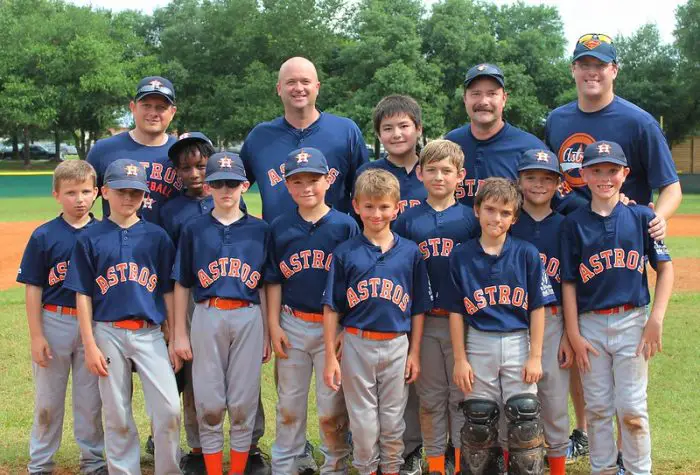
First, it’s critical to comprehend what a travel baseball team is and how it’s organized.
Travel Baseball Team
When a group of players travels together to compete in tournaments, they form a travel baseball team .
Travel baseball has other names like elite baseball, select baseball, premier baseball, etc.
Across the United States, more than hundreds or thousands of travel baseball teams are becoming more and more popular.
A travel baseball team may be formed by anybody, from parents to high school or college coaches to former baseball players who wish to stay involved in the sport for a longer period.
Travel Baseball Organization
While Little League is the most popular youth baseball organization, several travel baseball organizations organize travel tournaments for youngsters seeking more serious experience in the sport.
USSSA , Triple Crown Sports , and AAU are some of the most well-known travel baseball organizations.
It is common for travel baseball teams to participate in tournaments hosted by more than a single organization.
Forming A Travel Baseball Team
Let’s get going with what we promised at the introduction of this article, assisting you in learning the fundamentals of creating a travel baseball club.
It can seem like a daunting task to learn how to start a travel baseball team of your own at first, but in this article, I’ll walk you through the basics in simple steps to make things easier.
1. Looking For Coaches
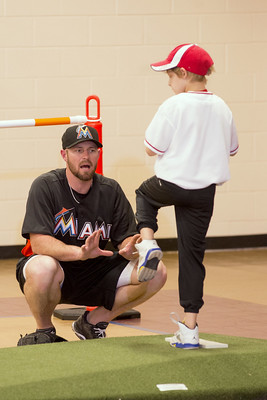
First and foremost, you’ll want a group of mature and experienced baseball-connected individuals who will serve as the team’s coaches once it’s assembled.
Coaches might be former baseball players who used to compete at the collegiate or high school levels, or they can be former baseball coaches .
Even if you cannot find any of these individuals, you may recruit devoted volunteers , including parents or other family members, or acquaintances who commit to the game of baseball.
Having parents serve as coaches will be simple since they will certainly be present at their children’s practice sessions.
However, keep an eye out for parents who are incapable of maintaining a professional demeanor and prejudiced toward their kids.
Informing coaches and volunteers about the time commitment required to assist your program is critical.
2. Forming A Budget

Before launching any new organization, it is essential to estimate the costs and choose the best methods of dealing with them , which is valid for creating a new baseball team as well.
Let’s start with a typical travel ball team’s expenses .
2.1 Advertising For The Team
Some travel teams may consider distributing flyers or brochures to boost their team’s visibility and make it more well-known among players to recruit and assemble the best squad possible, which may charge some bucks.
Advertising may also be done on the internet by creating a website , which also costs money.
You will know more about promoting in step 3.
2.2 Practicing Facilities
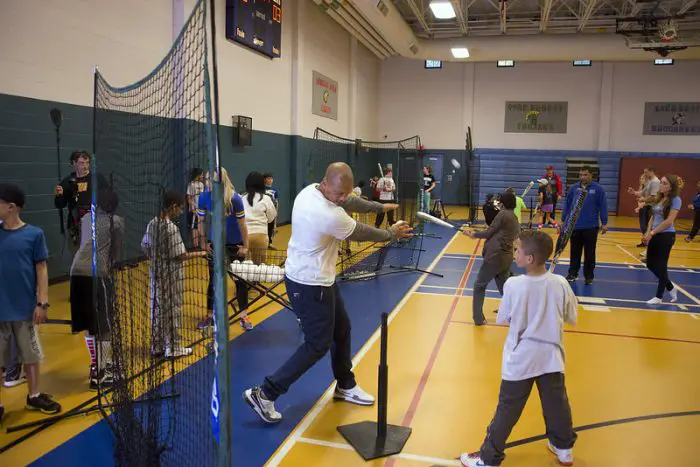
You’ll need a space for tryouts and, ultimately, for your squad’s practice sessions.
Don’t go overboard and hunt for expensive locations; instead, choose a decent enough site for the kids to practice without being too fancy, which isn’t really required.
You can easily find public parks that let people rent fields by the hour.
On rainy days, enclosed batting cages or classroom training could be a good option to keep the kids busy.
2.3 Equipment And Uniforms
It’s critical to look for reasonably priced clothing and equipment that will endure a long period since they will wear out with time.
2.4 Paying Coaches
This may or may not be on the list of your expenses, depending on who you recruit as the coaches for your team.

Traveling is going to be the main expense of your team.
When traveling, it’s essential to comprehend the amount of money required.
Consider the costs of flights or whatever your traveling means will be, food, housing, and activities to engage in during breaks or between competitions, among other things.
Now, let us discuss the ways to deal with these expenses .
2.6 Fees From Players
To deal with the expenses, you can start by selling the uniforms to players for a price.
Secondly, registration can also be used to collect fees from the players.
2.7 Sponsorship
Finding sponsors as a fundraising tool is a fantastic way to improve the management of your travel baseball club.
Local companies or bigger national brands that promote youth sports might be sponsors.
You can also make a website for raising funds.
Also, the website you make for promoting your travel baseball team may come in handy for helping generate revenue through ads once it gets a little famous.
3. Branding And Promoting Your Team

When forming a team, you must make it known to the public for it to be successful.
Branding and promoting your team are the two things you’ll need to do to make your team’s existence recognized and aid in the recruitment of serious, devoted players or even coaches.
Branding involves:
- Name: Give your squad a fun name that will lift their spirits and make your target audience understand the seriousness and objective of your team.
- Logo: Not only does a logo provide legitimacy , but it also creates excitement , as gamers will want to be a part of something fresh and exciting.
You can promote your team by:
- Flyers: You can make attractive flyers with your team’s name, logo, catchy slogans, team’s motive, and anything suitable.
Although this is quite an obsolete method, it might still help on a small scale.
- Website: A website will help you way more than flyers and will help promote your team on a large scale.
Make SEO-optimized content for your website, which will help potential players, parents, and whoever is interested in joining your team know your organization more.
Your website’s interface should be good enough to make the readers know your team’s seriousness.
4. Fixing The Age Group And Player Count
- Age Group: It is necessary to fix an age group (like 8U, 10U) for your team as if players from all age groups become a part of your team, it will be difficult to take part in tournaments.
It’s important to remember that you are forming a competitive team and not holding a training program.
- Player Count: A baseball team consists of nine players, but your team will need more for substitution during injuries or other reasons
You may want to consider a squad of ten to eleven players, which is a little more steady than nine and allows for one or two replacements every game.
5. Registration Of Players

You may wish to register players interested in joining your squad for tryouts, which may make collecting fees from them go more smoothly.
Player registration may also be used to gather information about them.
Registering players online is significantly more convenient than registering them offline.
6. Conducting Tryouts
You will be able to choose the players that you believe will offer you the greatest opportunity to compete during tryouts.
There are many various sorts of talents and skills that may be shown during tryouts.
To offer players a chance to attend at least one tryout, conduct them more than once.
7. Practice Sessions
Finally, after you’ve finished organizing your squad, you’re free to conduct regular practice sessions with all team members and coaches in your signed-up location.
A two-hour or ninety-minute practice session should be held at least twice a week.
How To Get On A Travel Baseball Team?
Not all parents have the time or resources to form a baseball team for their children.
But, it is nothing to worry about as there may already be travel teams in your region or nation that your kid may join.
To get on a travel baseball team, youth may do the following:
- Be Punctual: On the day of the tryouts, be certain that you are on time or have arrived earlier than scheduled.
- Proper Appearance: If you’re going to baseball tryouts, make sure your uniform reflects that fact as well.
Baseball pants or sweatpants, paired with a sporty sweatshirt, would be appropriate attire.
- Practice: Warm up and get into the zone in whatever time you have before exhibiting your talents and game to the squad’s coaches you’re trying out for.
- Good Attitude: Maintain a positive attitude toward your game and your teammates, and bounce back quickly from setbacks.
Some Common FAQs About Travel Baseball Team
What is a travel baseball team.
A travel baseball team is a team of players who travel together to compete in baseball tournaments. It aims to outperform other teams and players in the sport and works hard to reach that goal. Travel baseball is also known by other names like elite baseball, select baseball, premier baseball, etc.
How can I form my travel baseball team?
To form a travel baseball team, first, you need to gather a group of mature and experienced baseball-connected individuals who will serve as coaches once the team is assembled. Coaches might be former baseball players who used to compete at the collegiate or high school levels, or they can be former baseball coaches. Then, you need to form a budget to estimate the costs and choose the best methods of dealing with them, such as advertising the team, finding a space for tryouts and practice sessions, looking for reasonably priced clothing and equipment, paying coaches, and handling travel expenses. Finally, you can recruit players, distribute flyers or brochures, or create a website to promote your team and generate revenue through ads.
What are some popular travel baseball organizations?
Some of the most well-known travel baseball organizations are USSSA, Triple Crown Sports, and AAU. These organizations organize travel tournaments for youngsters seeking more serious experience in the sport. It is common for travel baseball teams to participate in tournaments hosted by more than one organization.
Who can form a travel baseball team?
Anyone can form a travel baseball team, from parents to high school or college coaches to former baseball players who wish to stay involved in the sport for a longer period. However, it is critical to gather a group of mature and experienced baseball-connected individuals who will serve as coaches once the team is assembled.
How can I make my child’s baseball career stand out?
If you want to make sure that your child or your baseball team stands out from the rest and does great things, you can start by opting for travel baseball. Travel baseball team aims to outperform other teams and players in the sport and works hard to reach that goal. By joining a travel baseball team or forming one, your child can gain more serious experience in the sport, compete in tournaments, and travel with a team.
It doesn’t have to be challenging to learn how to start a baseball team. It’s similar to starting a travel softball team .
The ultimate traits of someone interested in organizing a travel ball team will be their ability to work with numbers, dedication, and a desire to succeed.
Don’t worry about how things will turn out if you’re passionate enough; start tracking your expenditures right away!
About The Baseball Guide
Follow Us on Social Media
Thebaseballguide.com is a participant in the Amazon Services LLC Associates Program, an affiliate advertising program designed to provide a means for sites to earn advertising fees by advertising and linking to Amazon.com. As an Amazon Associate, I earn from qualifying purchases.
Copyright © 2017 - 2023 Thebaseballguide.com - All Rights Reserved.

Diablos Baseball
The Livermore Diablos are a nonprofit travel baseball club from Livermore, California.
Cooperstown Experience
Cooperstown, New York is home to the National Baseball Hall of Fame and Museum - a destination dedicated to the heroes and history of the game. Cooperstown All Star Village is a family baseball resort that hosts tournament camps each summer for youth teams. Each summer, 12U teams from all across the US travel to Cooperstown for a weeklong tournament and team experience.

The majority of the now 13U team has been together since 2018. The squad planned to travel to Cooperstown, NY, for a week long tournament / team experience during the Summer of 2020. Unfortunately, due to the COVID-19 pandemic, the team could not travel to Cooperstown.
Positions: 1B / OF / P
Throws: Left
Positions: IF / OF
Bats: Right
Throws: Right
Positions: 3B / OF / C
Positions: IF / OF
Throws: Left
Positions: C / P / 3B
Positions: P / 3B / SS
Positions: 2B / OF / C
Positions: C / OF / 2B
Positions: SS / C/ OF
2019 Cooperstown Team
Information on 2019 Team (images below)
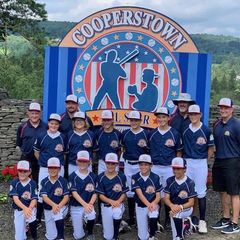
2018 Cooperstown team
Info on 2018 Cooperstown team (images below)

Our Sponsors
Thank you for your support.

Feel free to get in touch to learn more about Diablos Baseball.
Send us a message, and we will get back to you as soon as we can.
Livermore Diablos
2749 Rivers Bend Circle, Livermore, CA 94550
Copyright © 2020 Livermore Diablos - All Rights Reserved.
Powered by GoDaddy Website Builder

All Out Baseball

WELCOME TO ALL OUT BASEBALL
OPEN TRYOUTS HAPPENING NOW!
FLIER EMAIL
All Out competes at the highest
levels using volunteer coaches.
Parents only pay tournament fees
and pratice expenses.
MORE THAN WINNING
Dedicated to the development of
the complete baseball player.
We strive to teach life lessons that
provide value beyond the playing field.
FUN, FAMILY ATMOSPHERE
We pride ourselves on keeping our
players together from as far back as 8U,
but we're always looking to grow the family.

Wrigley Baseball Club
Wrigley Baseball Club is a premier baseball training club serving the SF Bay area. Youth travel teams to high school athletes rely on Henry Wrigley's expertise for fielding, batting, pitching, and conditioning training.
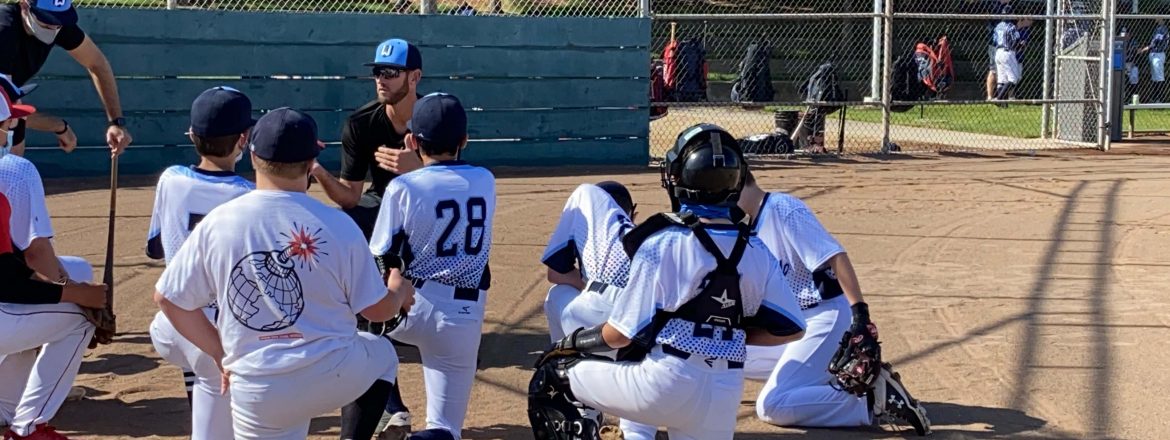
WP Theme for Sport Clubs
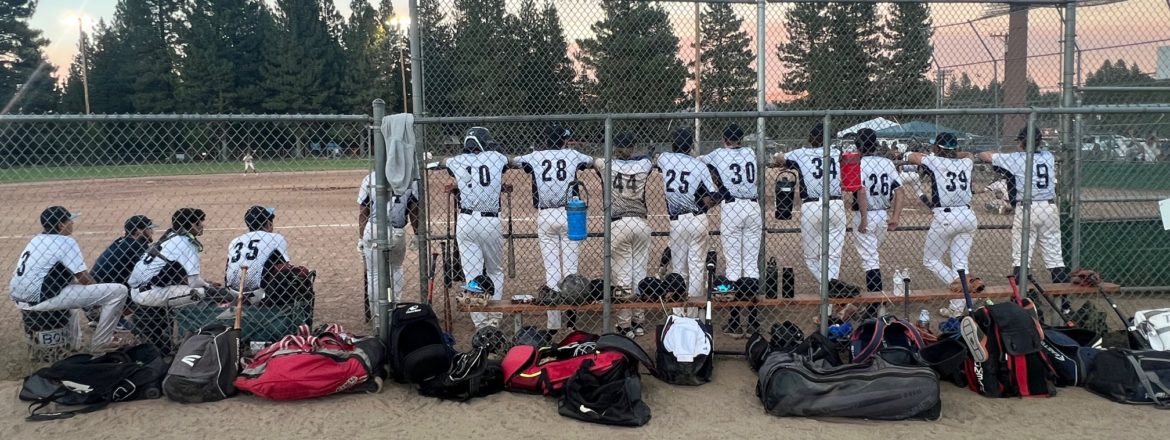
Made by an Elite Author
Quo eram amet aliqua incurreret et de velit duis aut iudicem. Culpa voluptatibus incurreret magna deserunt.
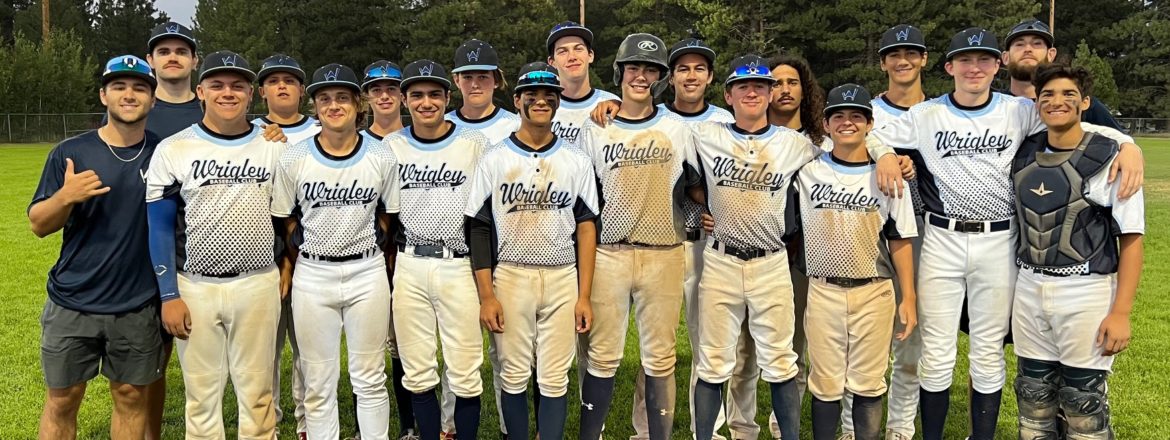
Summer 13u/14u/16u/18u Team Sign Up now Open! Limited Spots Remain
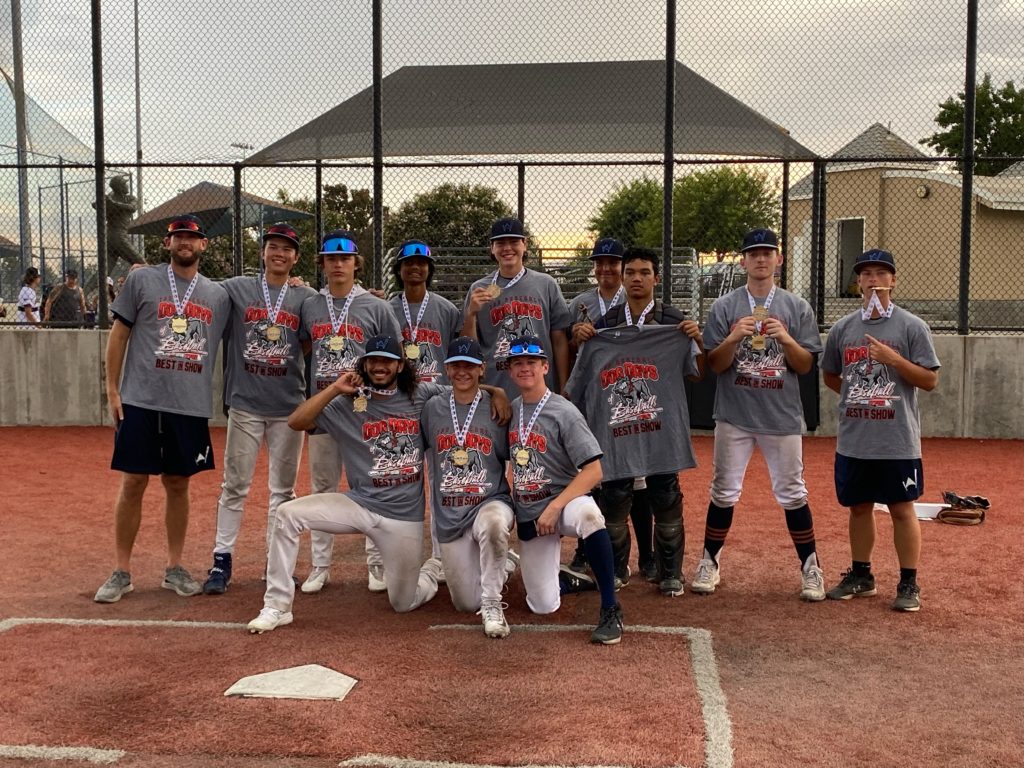
Sign Up now!
Wrigley baseball club is the premier travel ball organization on the peninsula..
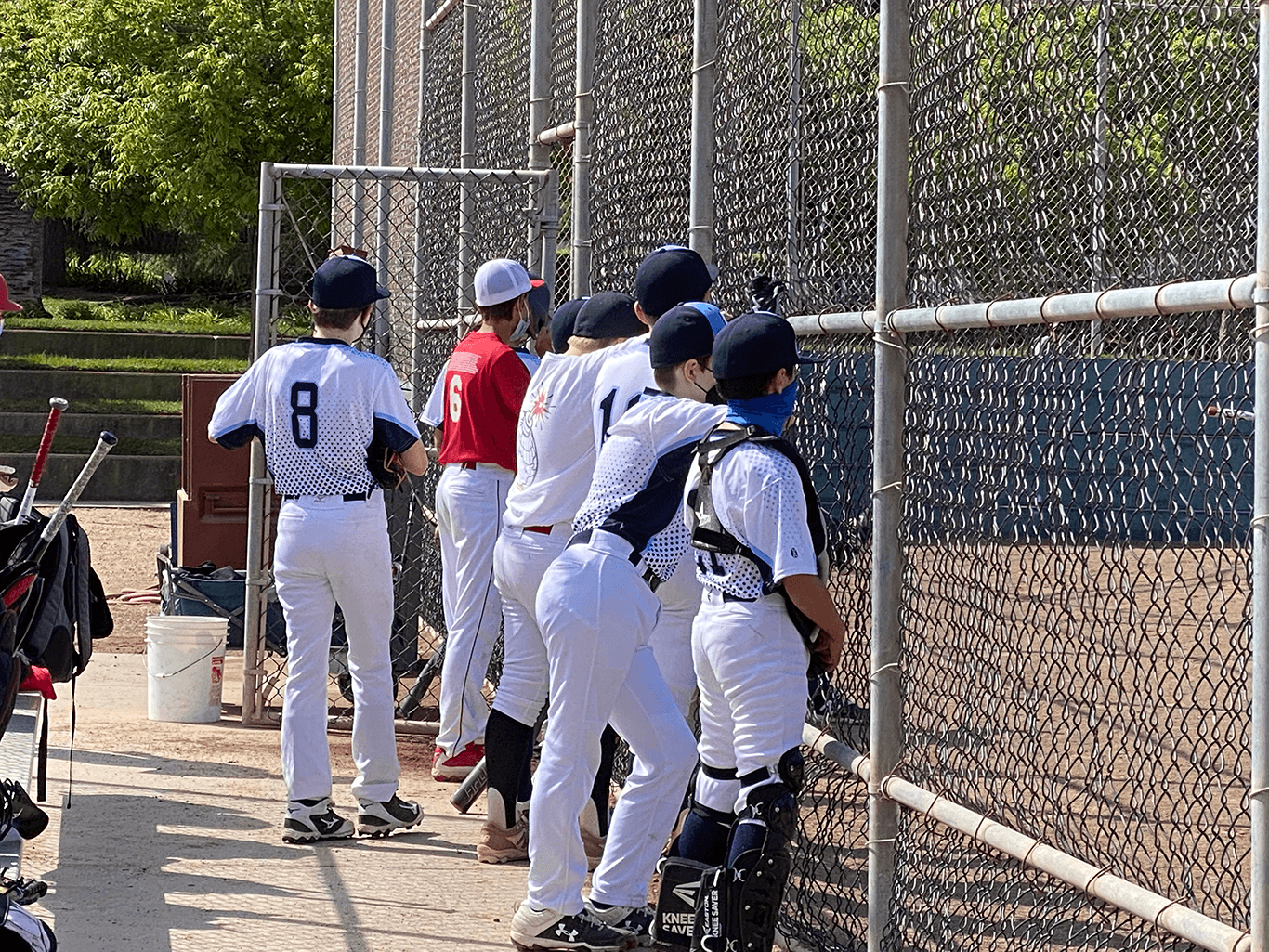
We are a premier baseball organization in the San Francisco Bay area that specializes in working with each individual player in the following areas of focus including: hitting, fielding, pitching, and catching. We also develop each player with the mental aptitude to face the challenges on the field of play. Our coaching staff consists of former professional and college players whose goal is to take your son and prepare him for the next level.
The core mission of the Wrigley Baseball club is to develop and prepare our players mentally and physically for the many challenges they will face in baseball and in life.
Wrigley Baseball Club teams will range from the ages 13u-18u. Tryouts for teams will be posted on this website and through our social medial channels. Stay Tuned for more!
Follow us on Instagram @wrigleybaseballclub Follow us on Facebook @Wrigleybaseballclub
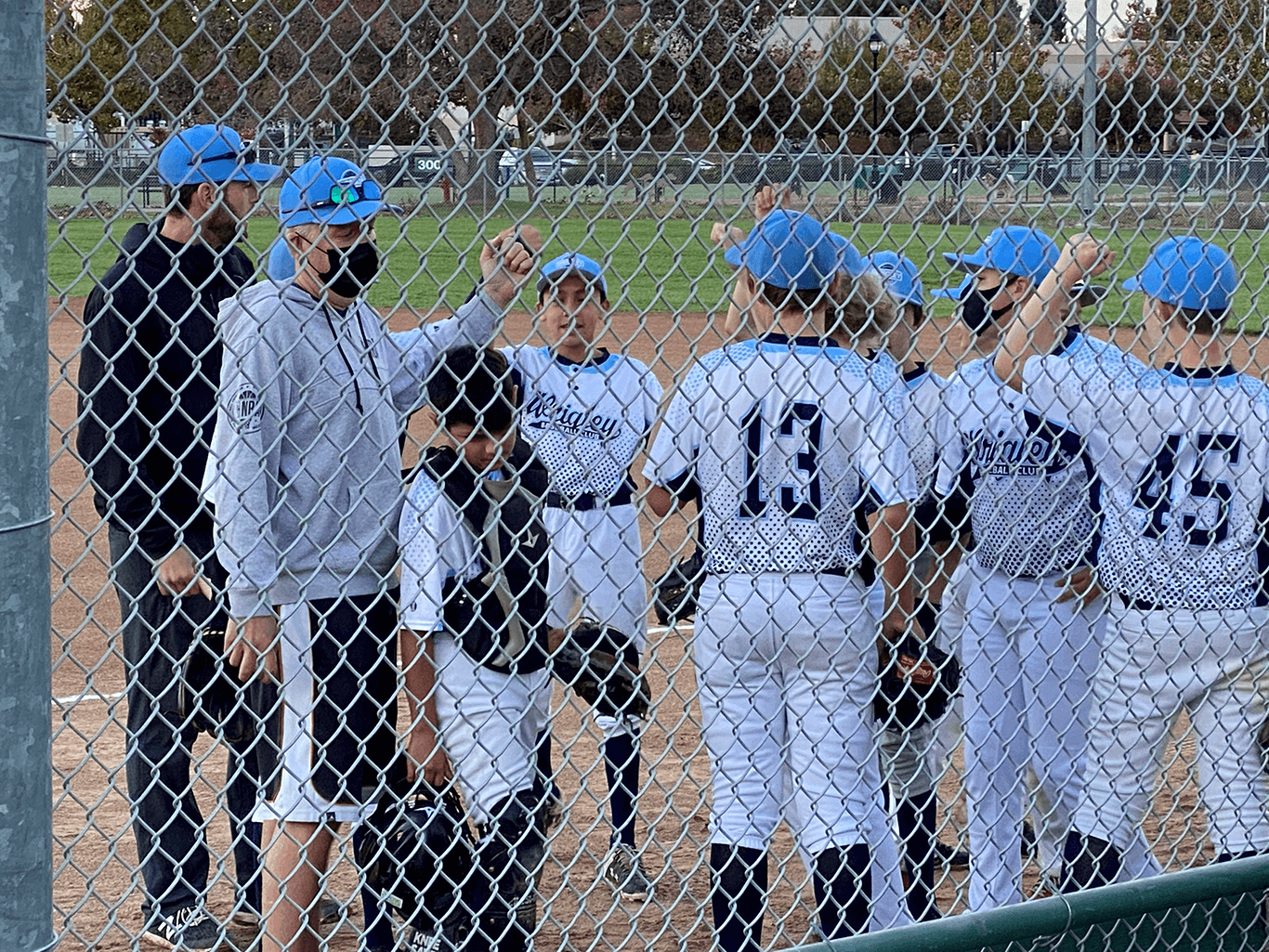
Each program listed will consist of the following areas of focus
- Mental Toughness
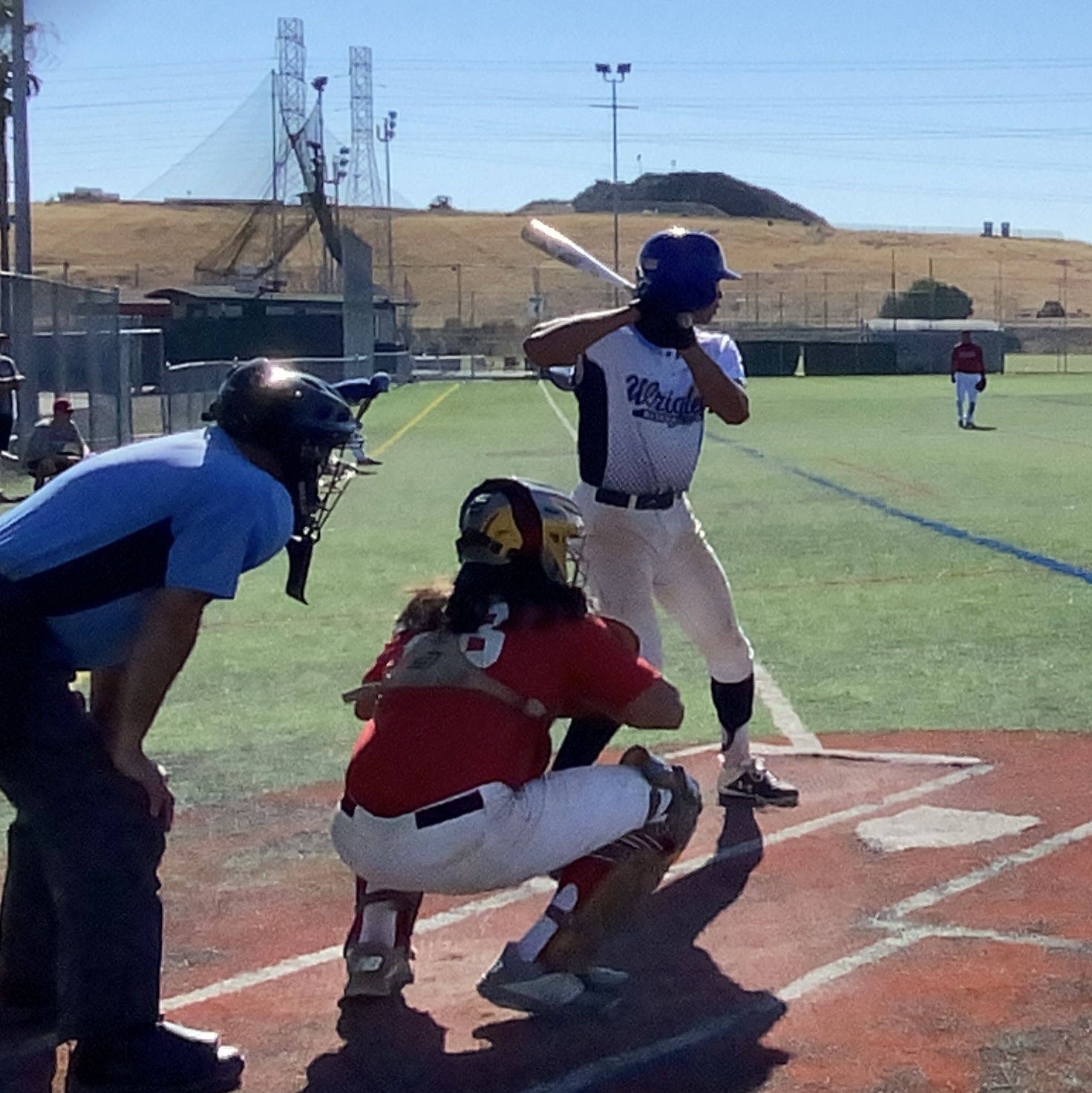
This program is open to players preparing for their upcoming High School Baseball tryout. The coaching staff has designed this accelerated program to get players in mid-season form before their league and High School season begins.
There will be one field and one cage practice per week for this program.
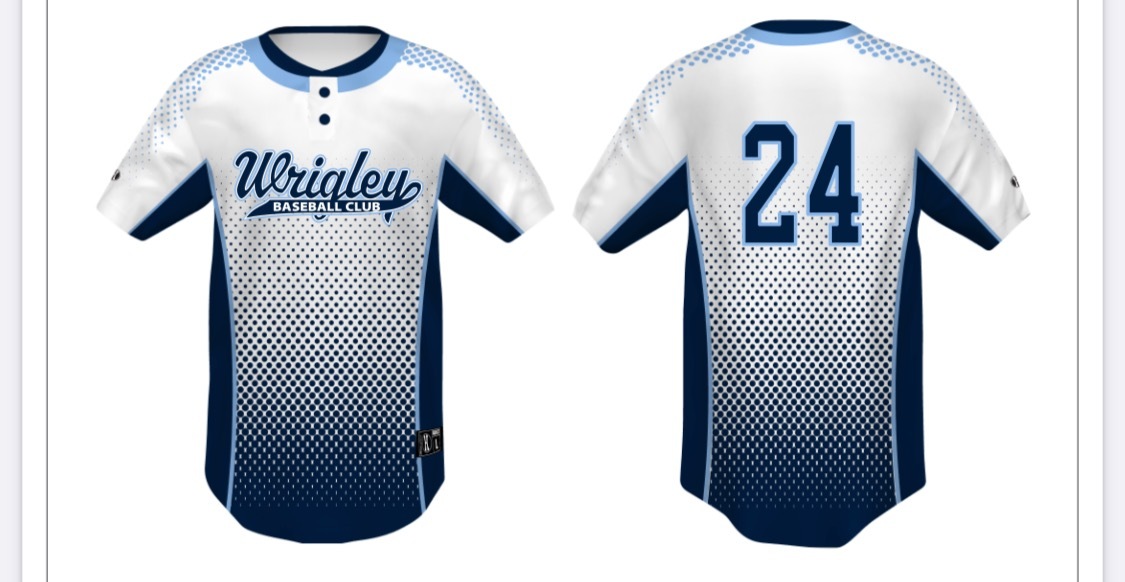
Henry Wrigley Henry played professional baseball from 2005 – 2015, playing for the Tampa Bay Rays, Colorado Rockies, and Baltimore Orioles organizations. A 2004 graduate of Burlingame High School, he broke the single season batting average record his senior year hitting .628. While attending College of San Mateo in 2005, Henry was drafted after his freshman year in the 14th round by the Tampa Bay Rays, where he played 8 seasons reaching AAA, hitting .282 with 79 RBIs and 20 home runs. He then played winter ball for Caracas Del Leones in the Venezuelan Winter League hitting .299 with 36 RBIs and 11 home runs (one batting average point away from being the 7th International player in the 70-year history of the Leones to hit .300 with 10 or more home runs and 30 or more RBIs). In 2013, he signed with the Colorado Rockies attending Big League spring training. He then played with the Baltimore Orioles and the St. Paul Saints. He finished his last year playing for the Lancaster Barnstormers where he had to retire one month into the season due to ongoing injuries. Henry finished his professional career playing 929 games collecting 913 hits and 118 career home runs with .260 lifetime batting average.
University of Tennessee Athletics

W : Causey, AJ (7-3) L : Magdic, Ryan (1-2)

#3 Vols Go Deep Six Times in Series-Opening Win Over Missouri
Story links.
- Box Score (PDF)
- Vitello Postgame Media
- Stark Postgame Media
- Causey Postgame Media
- Photo Gallery
Players Mentioned

#25 Blake Burke

#1 Christian Moore

#10 Cal Stark

#11 Billy Amick

#27 Chris Stamos

#18 AJ Causey

#5 Cannon Peebles

Thanks for visiting !
The use of software that blocks ads hinders our ability to serve you the content you came here to enjoy.
We ask that you consider turning off your ad blocker so we can deliver you the best experience possible while you are here.
Thank you for your support!
was not found
Buy Tickets

W : Markl, Connor (4-2) L : Barnett (3-2)
Game Recap: Baseball | April 20, 2024
Baseball Takes Series at UCLA
- Ryan Campos' second inning walk means he has now reached base safely in 119-of-129 career games (92.3 percent) with the Sun Devils and all but one game this season.
- Kien Vu has been electric over the last 16 games since his start against UNLV, leading the team with a .471 average with five homers, four doubles and a team-best 18 RBIs. His .843 slugging percentage is over .200 points higher than the next closest eligible hitter on the team. He's also a perfect 6-for-6 on stolen bases in that time.
- ASU reached double digit hits for the 24th time in 40 games, having 11 through the first four innings alone.
- Connor Markl has reached 5.0 innings in six consecutive games, easily the longest stretch of his career and the longest stretch for a Sun Devil since Kyle Luckham had seven-straight to close out the 2022 season.
- Jonah Giblin has not allowed a run in his last five games and hasn't allowed one over a stretch of 10.1 innings.
- The Sun Devil pitchers stranded nine UCLA batters in the contest.

- Copyright and Trademark
- Accessibility
- Terms of Use
- Contact ASU
- Terms of Service , opens in new window
- Privacy Policy , opens in new window
- Do Not Sell or Share My Personal Information

Thanks for visiting !
The use of software that blocks ads hinders our ability to serve you the content you came here to enjoy.
We ask that you consider turning off your ad blocker so we can deliver you the best experience possible while you are here.
Thank you for your support!
University of Richmond Athletics

W : Anderson, Matthew (2-1) L : MANZER, Nolan (3-3)
Game Recap: Baseball | 04/23/2024
Spider Baseball Picks Up Midweek Victory Over Norfolk State

Thanks for visiting !
The use of software that blocks ads hinders our ability to serve you the content you came here to enjoy.
We ask that you consider turning off your ad blocker so we can deliver you the best experience possible while you are here.
Thank you for your support!
Find My Team
Blog TeamSnap For Business
- General Sports
- Health and Safety
- for Business
- Announcements

Aug 01, 2023 • 5 min read
How to Get Sponsorship for Your Youth Sports Team

Taylor McKillop
- TeamSnap For Business

A few helpful tips to get sponsorship for your youth sports team.
- Get Support From Your Local Community
- Start Your Online Presence
- Think About Grants
- Write the Perfect Sports Sponsorship Letter
- Sign Up for the Best Youth Sports Sponsorship Tool
Youth sports are expensive. That’s why one of the best channels for making your programs more affordable is getting youth sports sponsorships. Youth sports sponsorship is a marketing channel that involves sponsoring a youth sports team, league, or individual athlete.
Youth sports sponsorships or grants can take various forms, such as sponsoring team uniforms, equipment, facilities, travel expenses, tournaments, and events. Brands can also offer educational programs, scholarships, and mentorship opportunities to young athletes.
How exactly do you get a youth sports sponsorship for your organization?
How to Get a Youth Sports Sponsorship
#1 get support from your local community.
Starting out with your local community is a strong first step. Depending on the size of your community, different organizations will likely have strong bonds with your league and the youth participating.
Local businesses enjoy giving back or providing an impact in their community and you’d be surprised how many are willing to help out. Reach out to your connections or take a grassroots approaching to fielding these sponsors . Some examples: banners hanging on the fields or courts you play on, or adding patches to your uniforms.
Ask the parents of your players for help with this. This is usually the #1 channel for gaining sponsorships each season.
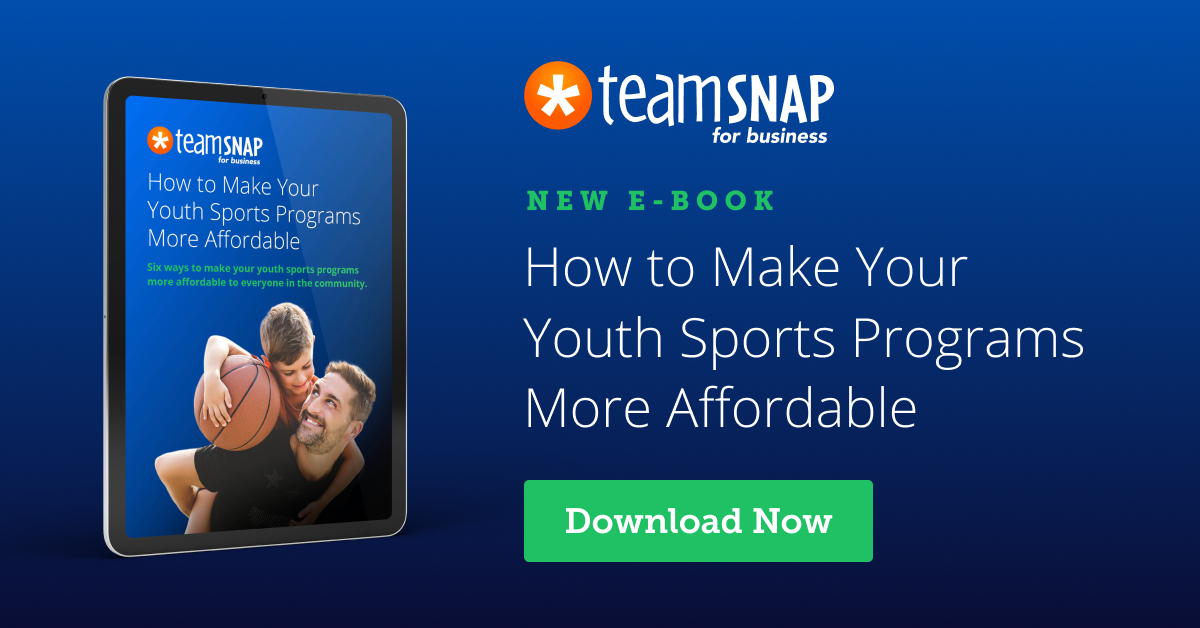
#2 Start Your Online Presence
Today’s youth sports landscape has a heavy online presence. There’s a good chance your organization or league has a website and social media channels. Take advantage of this. Online channels are some of the most attractive, especially to brands outside of your local region.
Some examples include putting sponsor logos on your website or sending out sponsored emails and social posts.
Use digital tools and your digital channels to source sponsorships for your youth sports team. TeamSnap Sponsorship can help with this process, you’ll learn more at the end of the article.
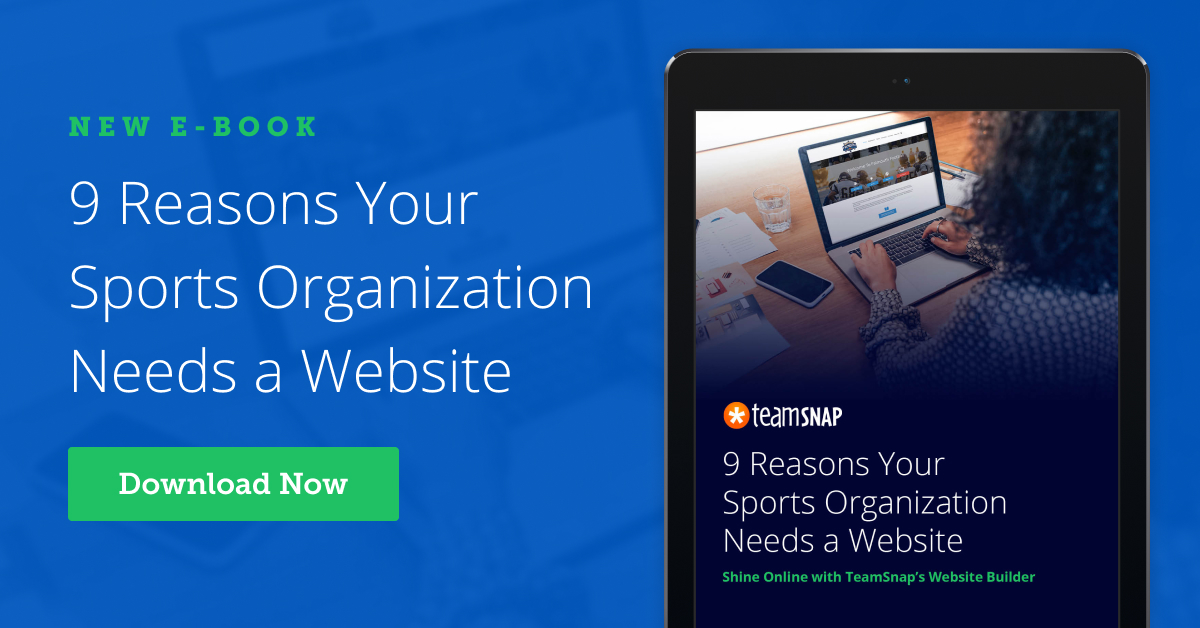
#3 Think About Grants
Grants may be defined slightly differently than sponsorship, but they will help accomplish the same goal : raising money for your youth sports organization. A grant is a sum of money given for a particular purpose. There are a variety of national grants designed specifically for youth sports purposes, such as improving sports equipment for leagues and helping children stay active in the community.
Think of a grant as a long term option to raise large funds and a local sponsorship as a quick way to raise smaller amounts. Many of the grant programs listed below will only approve 501(c)(3) organizations .
#4 Write the Perfect Sports Sponsorship Letter
Sponsorship letters are one method of reaching out to potential sponsors. A clear and concise sponsor letter can help you gain funding to subsidize the costs for travel, equipment, and registration fees.
Want help crafting the perfect youth sports sponsorship letter? Click here for an easy template ! You can upload this sponsorship letter directly to the TeamSnap Sponsorship platform to get started.
#5 Sign Up for the Best Youth Sports Sponsorship Tool
TeamSnap Sponsorship is a strong tool for club and league managers to use in attempt to attract youth sports sponsorships.
TeamSnap Sponsorship makes youth sports more accessible by connecting organizations like yours with regional and national brands as sponsors. And, there’s no additional cost!
- Add financial support and cash funding to your organization!
- Gain credibility + visibility from big name sponsors
- Build meaningful partnerships with supportive brands
How it Works
- Sign up in minutes and gain immediate access to the largest network of sponsorship opportunities around.
- Start receiving opportunities and offers from sponsors interested in working with your organization.
- Verify the sponsorship in action with the help of our dedicated support team and unlock cash funds.
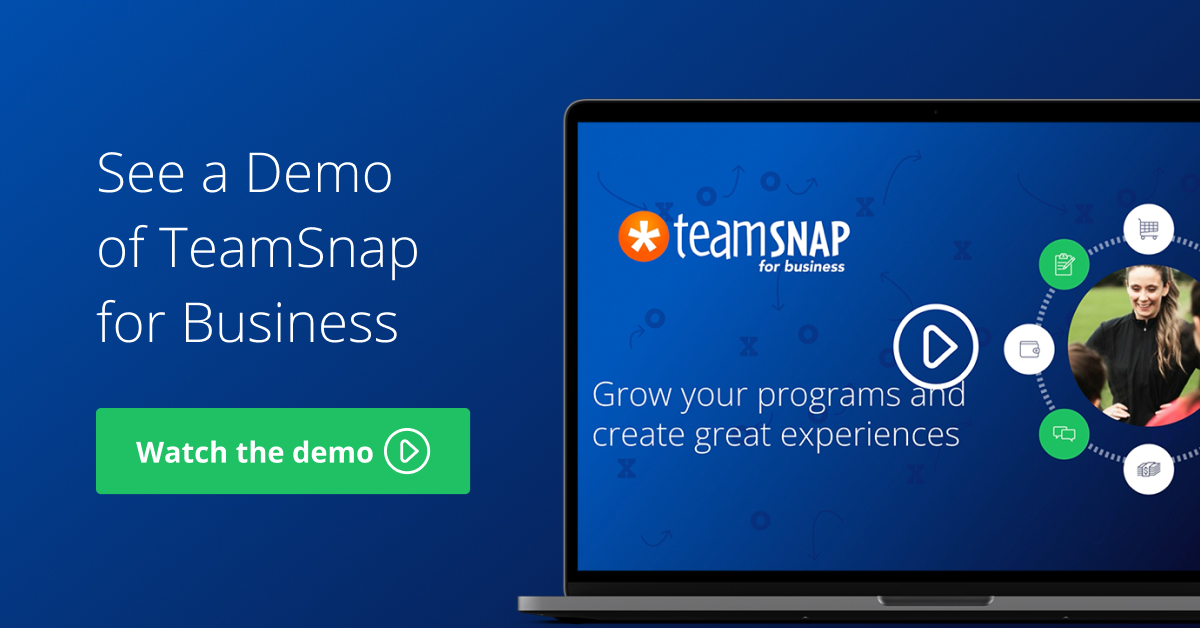
Download our app
Share this post, create your team today, it’s free and free is good.
Capital University
Offcanvas scoreboard.

- Box Score 1
- Box Score 2

W : A. Anthony (2-5) L : Bromberg, Noah (1-6)
W : J. Ferreira (1-2) L : Sickles, Tyler (2-4)
Game Recap: Baseball | 4/23/2024 8:10:00 PM
Baseball Celebrates President Kaufman With the ‘Kaufman Kup’ at Huntington Park

Thanks for visiting !
The use of software that blocks ads hinders our ability to serve you the content you came here to enjoy.
We ask that you consider turning off your ad blocker so we can deliver you the best experience possible while you are here.
Thank you for your support!
Roger Williams University Athletics

W : Glickman, MarkAnthony (1-0) L : C. Torres (2-3)
Game Recap: Baseball | 4/25/2024 9:40:00 PM | Nathan Laird - Athletic Communications Student Worker
Baseball: Hawks Complete Walk-Off Win Against #18 Eastern Connecticut State
BRISTOL, R.I. – The Roger Williams University baseball team scored three runs in the bottom of the ninth to secure the win against #18 Eastern Connecticut State University on Thursday afternoon, 12-11, on Paolino Field.
Nolan Niziol (Sparta, N.J.) started on the mound for the Hawks. In 3.1 innings, Niziol allowed four earned runs on six hits and two walks. James Nichols (Bridgewater, Mass.) followed in relief, allowing two earned runs on five hits and two walks. The bullpen tightened up in the later innings, with Matt Hynes (Farmingdale, N.Y.), Brett Lauterbach (Fairfield, Conn.), and MarkAnthony Glickman (Newbury, Mass.) each pitching a scoreless inning.
London Camelo 's (Bristol, R.I.) phenomenal offensive night helped the Hawks pull off their second ranked win of the season. Camelo went 5-6 at the plate in the game with 4 RBIs, two of which came on his game-tying single in the ninth. Aidan Hawley (Natick, Mass.) went 4-6 with a triple, and Jack Morin (North Andover, Mass.) went 3-6 with a double and two RBIs.
ECSU began the game's scoring in the top of the first, putting one run on the board. The Hawks answered with four runs in the bottom of the inning. Back-to-back-to-back doubles by Morin, Camelo, and Dennis Folan (Medfield, Mass.) brought in three runs, and a bases loaded walk by Ty Cali (Taunton, Mass.) brought another run in for the Hawks.
In the fourth inning, ECSU's offense had a seven-run outburst, putting them ahead 8-4. Roger Williams was able to add two runs in the bottom of the inning, with RBI singles by Morin and Folan. The Warriors struck again in the fifth inning on a three-run home run, extending their lead to five runs.
The Roger Williams rally began in the sixth inning. Nick Sheehan put the ball in play with the bases loaded, and the ECSU shortstop made an error that allowed two runs to score. The Hawks added another in the seventh on a Camelo RBI single.
Heading into the bottom of the ninth, RWU was trailing 11-9. The Hawks' first three batters all reached base two singles and a HBP, setting up Camelo with the bases loaded. Not feeling the pressure, Camelo ripped a single through the right side of the infield, bringing in two runs to score and tie the game.
The next batter, Folan, was intentionally walked to load the bases once again and bring Rory Lynch (Easton, Conn.) to the plate. With a full count, Lynch laid off of ball four to draw a walk and score the game winning run.
Roger Williams (22-6-1, 8-2 CCC) will host Nichols for a CCC doubleheader on Saturday, Apr. 27.

Thanks for visiting !
The use of software that blocks ads hinders our ability to serve you the content you came here to enjoy.
We ask that you consider turning off your ad blocker so we can deliver you the best experience possible while you are here.
Thank you for your support!
University of Wisconsin - Stevens Point Athletics

W : Conner Robertson (1-0) L : Krueger, Kaden (0-1)
Game Recap: Baseball | 4/23/2024 8:43:00 PM
Comer Homers Twice, Ties School Record, Pointers Fall in Extras

Thanks for visiting !
The use of software that blocks ads hinders our ability to serve you the content you came here to enjoy.
We ask that you consider turning off your ad blocker so we can deliver you the best experience possible while you are here.
Thank you for your support!

IMAGES
VIDEO
COMMENTS
The program includes grants for soccer programs and direct sponsorship of the US Soccer Foundation to build new facilities. Target made a $14 million commitment to youth soccer through two new national initiatives—an $8 million local soccer grant program, and a $6 million partnership with the U.S. Soccer Foundation.
Youth travel teams and tournaments for baseball, basketball, football, soccer, softball, and volleyball. Get active. travelball. ... Sponsors. Get on the field. Everything you need to find teams and tournaments. Up until this point, travel sports has been segmented and difficult to navigate. We are the central location for all things travel ...
As a player, being a member of a travel baseball team is a thrilling experience. Following are a few pointers that can help you relax and perform at your best, making joining a baseball team much simpler. 1. Be On Time (Or Before Time) First of all, plan to arrive a few minutes early.
Here are a few ideas to get you started: Renting out batting cages for a Hit-a-Thon and collecting donations. Pancake breakfasts and chili dinners before a high school football game or other local events. Volunteering at professional sporting events to collect money for the team. Collecting donations at a home run derby.
Youth baseball sponsorship is a marketing channel that involves sponsoring a youth baseball team, league, or individual athlete. Youth baseball sponsorships or grants can take various forms, such as sponsoring team uniforms, equipment, facilities, travel expenses, tournaments, and events.
Our goal is simple. We aim to streamline the process of finding the baseball teams for athletes of all levels. We partner with premier travel baseball organizations nationwide, offering them a stage to highlight what sets them apart. This is your chance to explore and connect with teams that match your goals. Get early access to our platform.
Less expensive - The average fee in the U.S. for a season of Little League is $150, but it could vary as low as $30 and as high as $250 in some areas. Travel ball can easily cost three to four times that. But we'll get into the details and rough estimates of this cost in just a bit. Little League Cons.
Create a brand and generate interest in your team. Promote your travel baseball team. Schedule tryouts. Collect payments. Register your teams. 1. Find coaches and volunteers. Volunteering to help coach or manage a travel baseball team can be a big commitment.
We answer the most important questions about travel baseball. We discuss how to join a team, how much it costs to play, and more. ...
2. A welcomed form of advertising. Sponsoring a youth sports team are a positive and engaging way to market your brand. Parents like to see companies that are supporting local sports. 3. Helps keep the cost of our travel baseball team program low. The Wolves Program, however, is financially independent. Therefore, the Wolves must cover all ...
The specific answer varies, but the typical range of cost for participating in travel baseball is between $500 and $2,500 per year. That said, you can end up spending a lot more than that. Back in 2011, CBS News reported that one Georgia family paid $4,000 per year for their 9-year-old son's travel team.
4. Work with your local community. Engaging with your local community can be instrumental in securing sponsorships for your youth sports team. Build relationships with businesses, community organizations and civic leaders by attending local events, networking meetings and community gatherings.
There are key steps that you can take to improve your chances to get sponsored. 1. SET UP A CROWDFUNDING CAMPAIGN. The is the fastest and easiest way to find sponsors for your team. Your online campaign will not only bring individual monetary sponsorship it can also capture monetary sponsorship.
Informing coaches and volunteers about the time commitment required to assist your program is critical. 2. Forming A Budget. Before launching any new organization, it is essential to estimate the costs and choose the best methods of dealing with them, which is valid for creating a new baseball team as well.
Choose a name and logo: Choosing a name and logo for your team can help create a sense of identity and pride among players and fans. Consider coming up with a name that reflects the values and goals of your team. Work with a graphic designer to create a logo that can be used on uniforms, equipment, and other promotional materials.
Welcome to our dynamic hub, a one-stop resource for athletes seeking travel baseball teams near me or baseball teams near me. We have invested hours in developing an ever-growing list, meticulously compiled to make your search for the perfect team as easy as possible. Our comprehensive directory is organized by age, city, state, and zip code ...
Cooperstown All Star Village is a family baseball resort that hosts tournament camps each summer for youth teams. Each summer, 12U teams from all across the US travel to Cooperstown for a weeklong tournament and team experience. The majority of the now 13U team has been together since 2018. The squad planned to travel to Cooperstown, NY, for a ...
Sponsors SWAG & TEAM SHOP Keystone Nationals is a travel baseball organization dedicated to helping our players reach their goal of playing better ball through high school and beyond. In addition to playing better ball, our goals, for our players, include being Student-Athletes by maintaining a 'B' or above, each marketing period, while ...
We pride ourselves on keeping our. players together from as far back as 8U, but we're always looking to grow the family. Read More. All Out Baseball is a Bay Area, youth, non-profit travel baseball organization dedicated to the development of the complete baseball player.
CAA Sponsors; Travel Baseball. ... 2024 CAA Travel Baseball Teams. For those new to the program, we start off with a hybrid team at the 9u level. ... Travel Teams (10u-14u) ~ $550-650 per player *This year's 10u will be a full Travel Team. - Tournament Teams (9u/10u) ~$295-375 per player. Our Player fees include the following: - Travel League ...
Here is the perfect sports sponsorship letter sample for baseball teams. A clear and concise sponsor letter can help you gain funding to subsidize the costs of travel, tournaments, equipment, and registration fees. One helpful hint is targeting the right audience. Maybe it's a business leader you've worked with in the past.
Wrigley Baseball Club is the premier travel ball organization on the Peninsula. Led by former 10 year professional baseball player and current high school baseball head coach Henry Wrigley, Wrigley Baseball Club offers a coaching and playing experience unmatched by any other Bay Area baseball teams. Wrigley Baseball provides professional level ...
Major League Baseball on Monday announced WM, a leading environmental services provider, as the Official Sustainability Partner of Major League Baseball. This is the first sustainability-focused partner in League history, which will aim to elevate MLB's continued sustainability-related efforts in ballparks and throughout communities. WM will be the presenting sponsor
Game Recap: Baseball | April 25, 2024. KNOXVILLE, Tenn. - No. 3/3 Tennessee opened its series against Missouri with a bang, tying a season high with six home runs to cruise to a 10-1 win on Thursday night at Lindsey Nelson Stadium. Six of the Vols' 10 hits on the night left the yard while all 10 of their runs came via the long ball.
LOS ANGELES - Sun Devil Baseball put together one of its most complete games of the season in all facets in routing UCLA, 8-2, on Saturday afternoon at Jackie Robinson Stadium in Los Angeles to seal the series victory. Every Sun Devil starter had a hit in the contest, recording 15 total while the pitching staff held UCLA to just two runs on four hits as ASU (19-21, 9-11 Pac-12) played flawless ...
Bonaventure. Spider Baseball Picks Up Midweek Victory Over Norfolk State RICHMOND, Va. - The Richmond Baseball team batted around in the first and third innings, helping the squad to a 17-10 victory Tuesday afternoon over Norfolk State at Pitt Field. Richmond, now 18-23 on the season, jumps back into Atlantic 10 Conference action this weekend.
TeamSnap For Business. A few helpful tips to get sponsorship for your youth sports team. Get Support From Your Local Community. Start Your Online Presence. Think About Grants. Write the Perfect Sports Sponsorship Letter. Sign Up for the Best Youth Sports Sponsorship Tool. Youth sports are expensive. That's why one of the best channels for ...
Matchup History. COLUMBUS, Ohio - The Capital University baseball team hosted Ohio Wesleyan University at Huntington Park this afternoon for the inaugural 'Kaufman Kup' presented by Encova Insurance. Despite celebrating Capital President Dave Kaufman throughout the day, Capital baseball fell in both games via scores of 9-3 and 14-7.
BRISTOL, R.I. - The Roger Williams University baseball team scored three runs in the bottom of the ninth to secure the win against #18 Eastern Connecticut State University on Thursday afternoon, 12-11, on Paolino Field.
STEVENS POINT, Wis. - Senior Bradley Comer (Rhinelander, Wis./Rhinelander) recorded his third-straight multi-home run game and tied the school record with his 50th career home run on Tuesday. His home runs were two of the nine hit in the game as the UW-Stevens Point baseball team (19-10) fell in 10 innings to visiting Lawrence (22-8) by a 17-16 final.